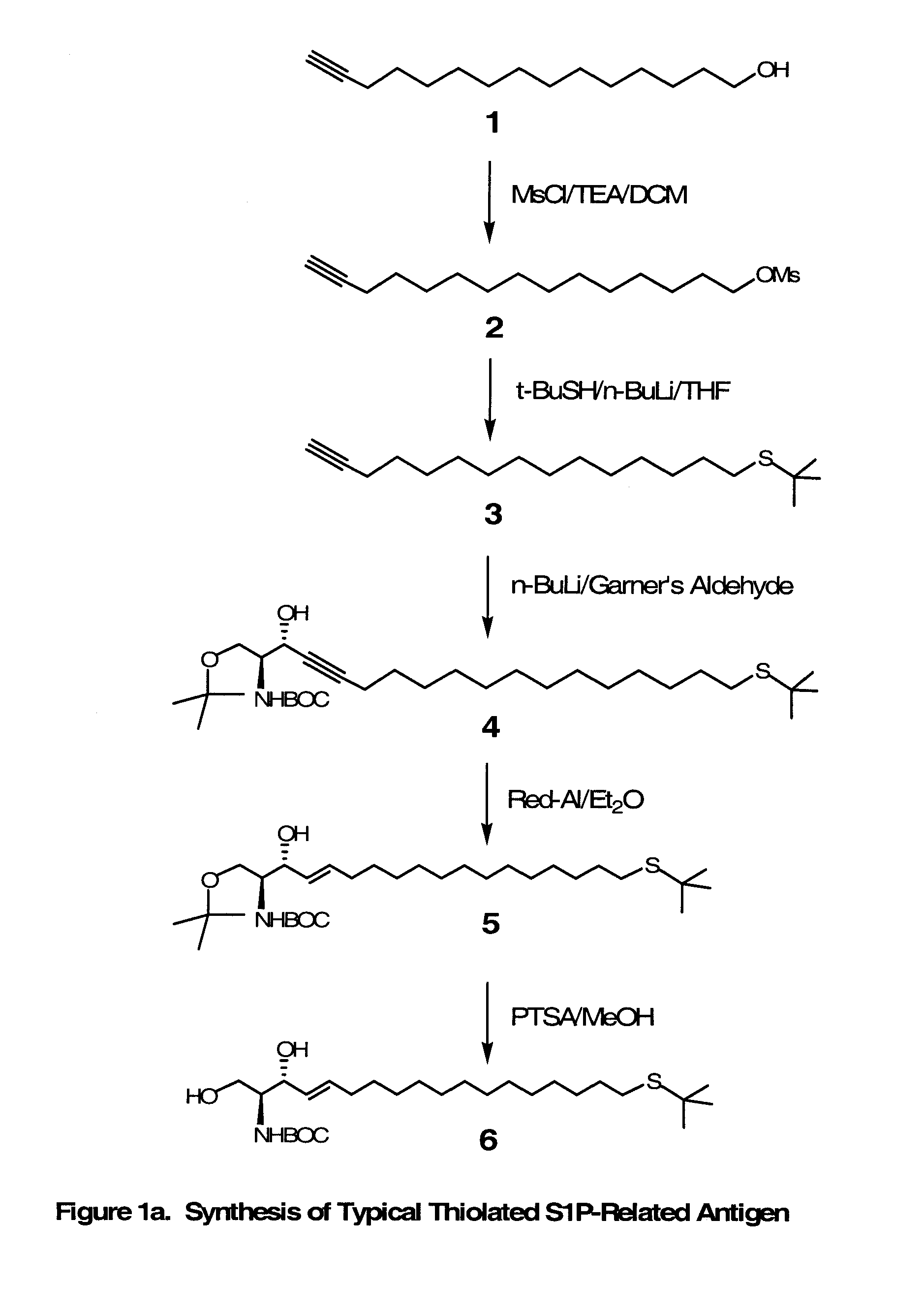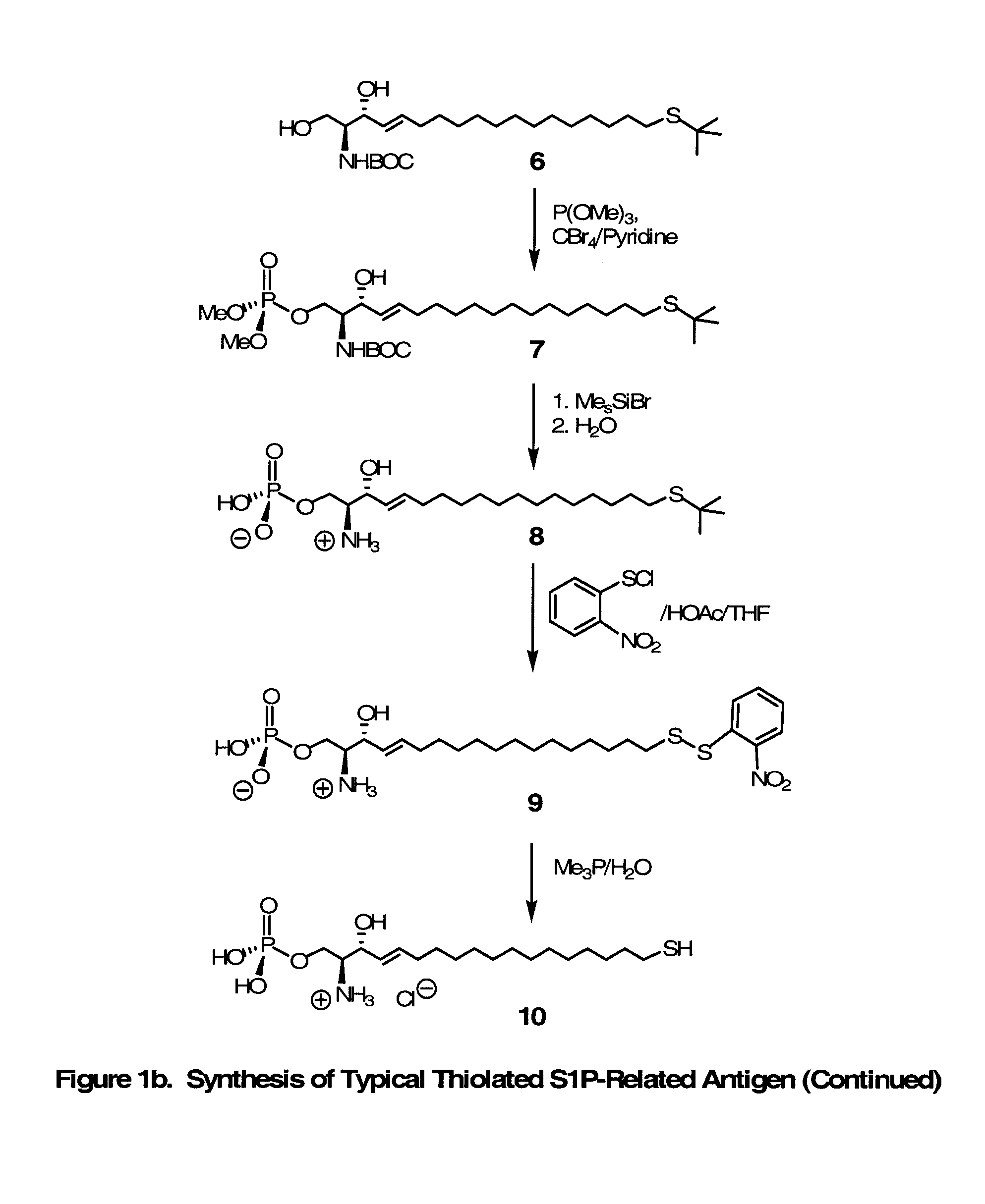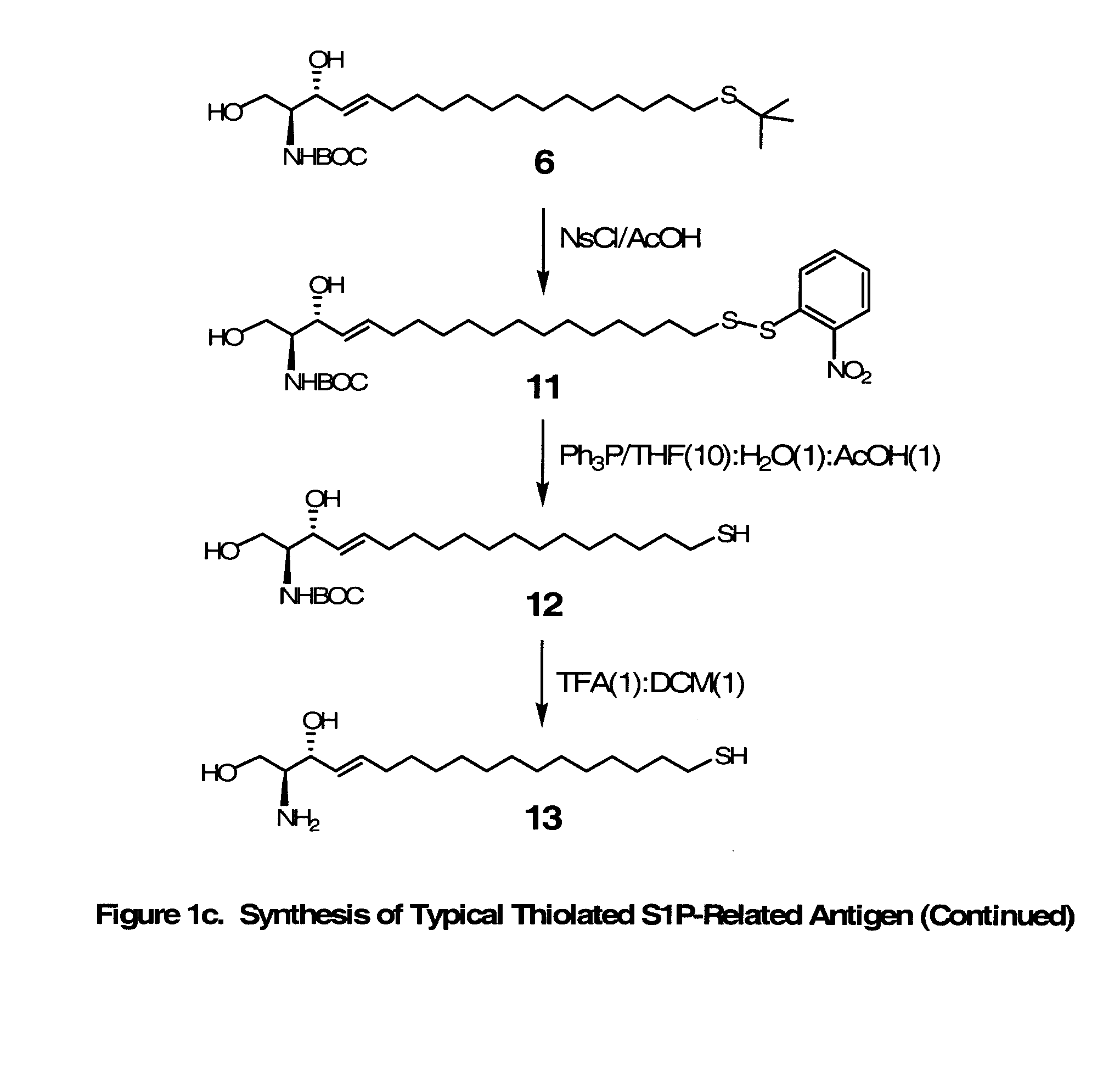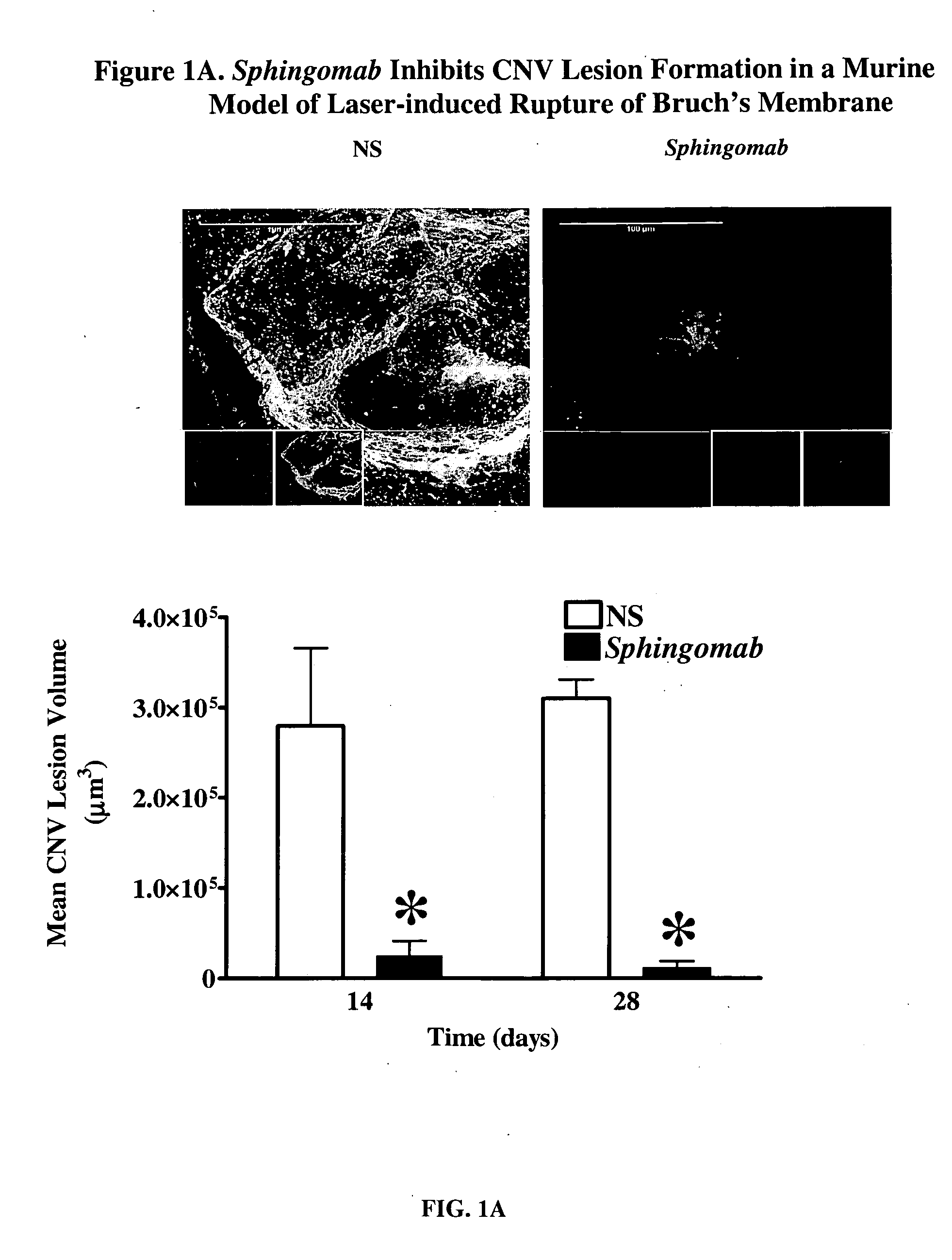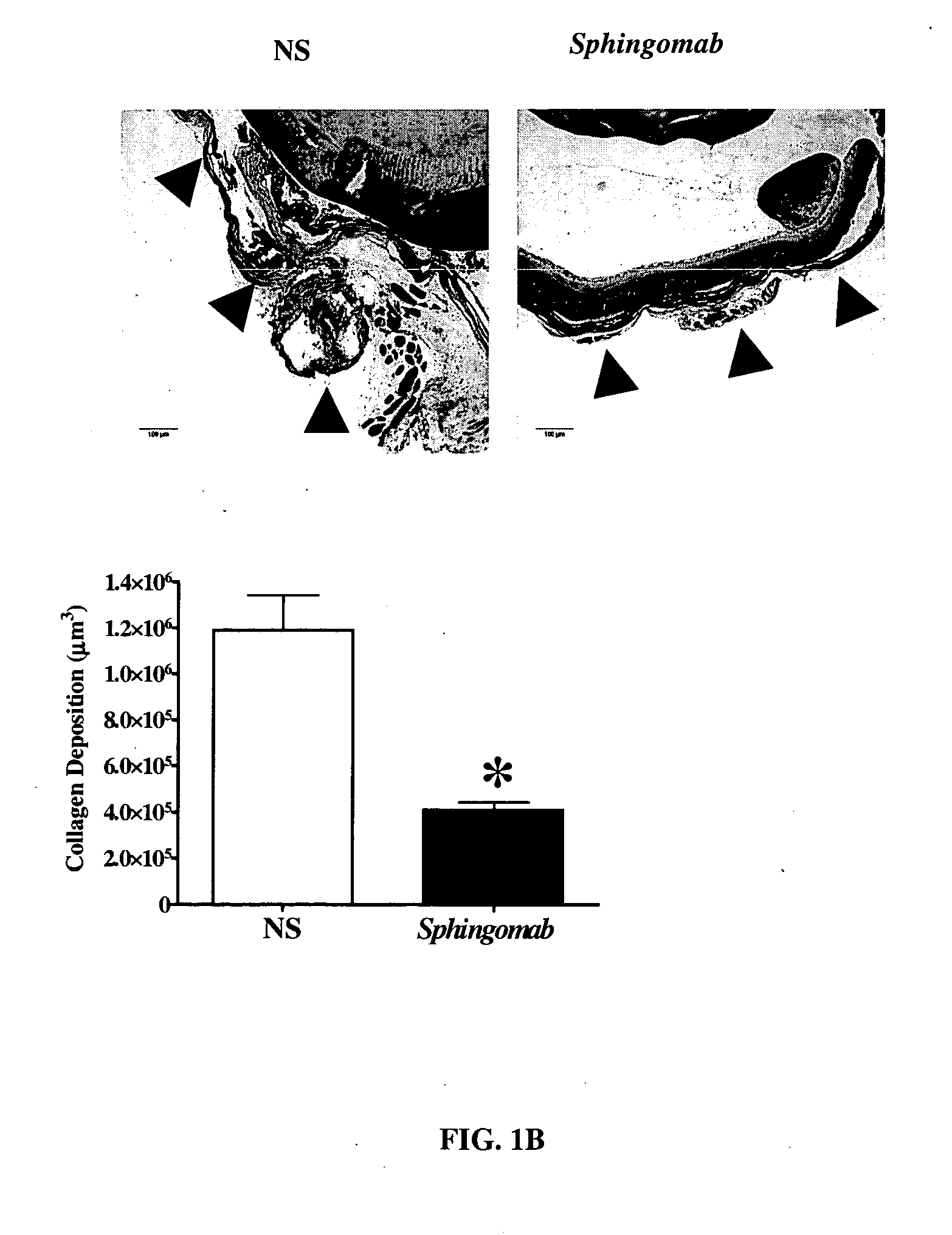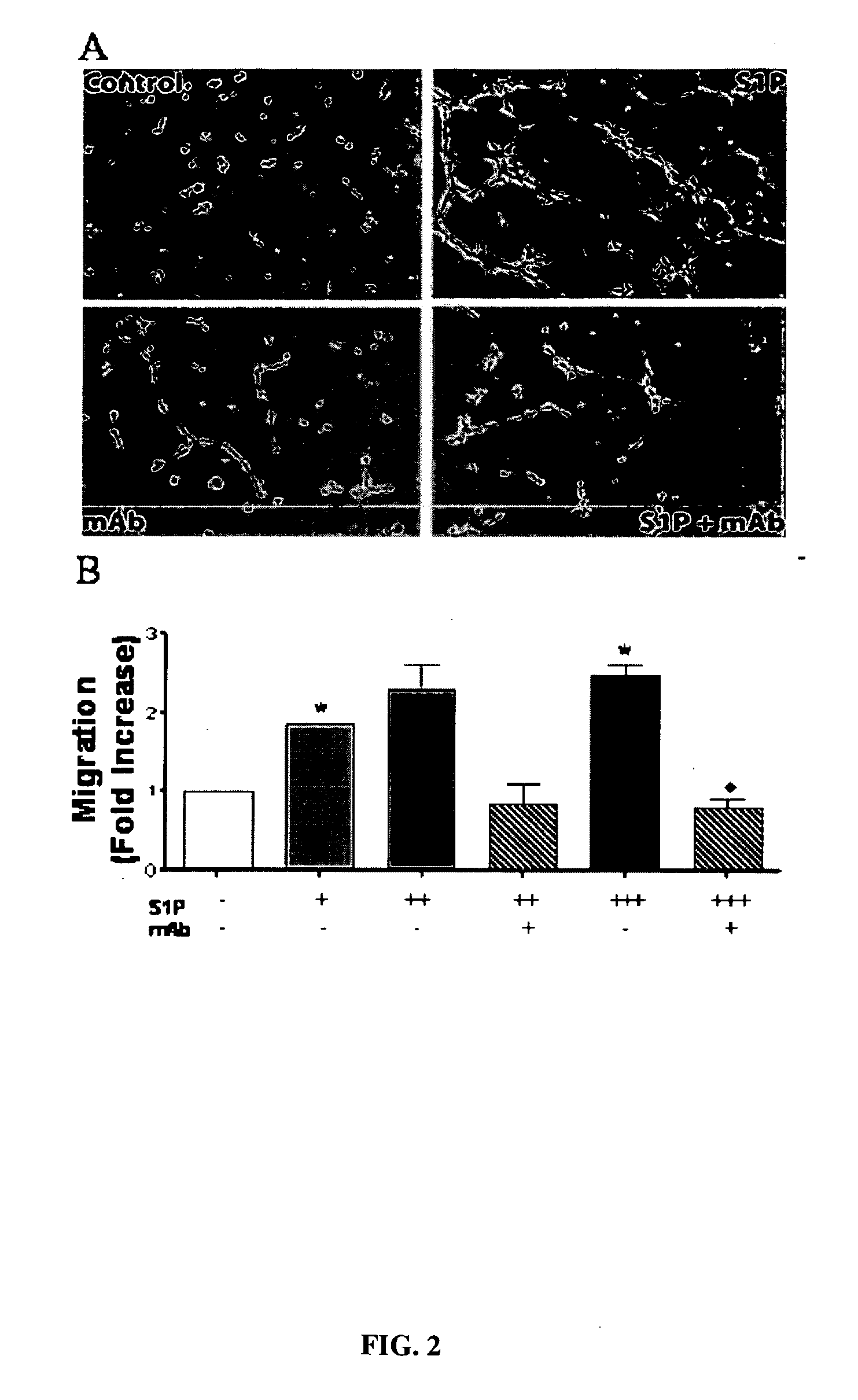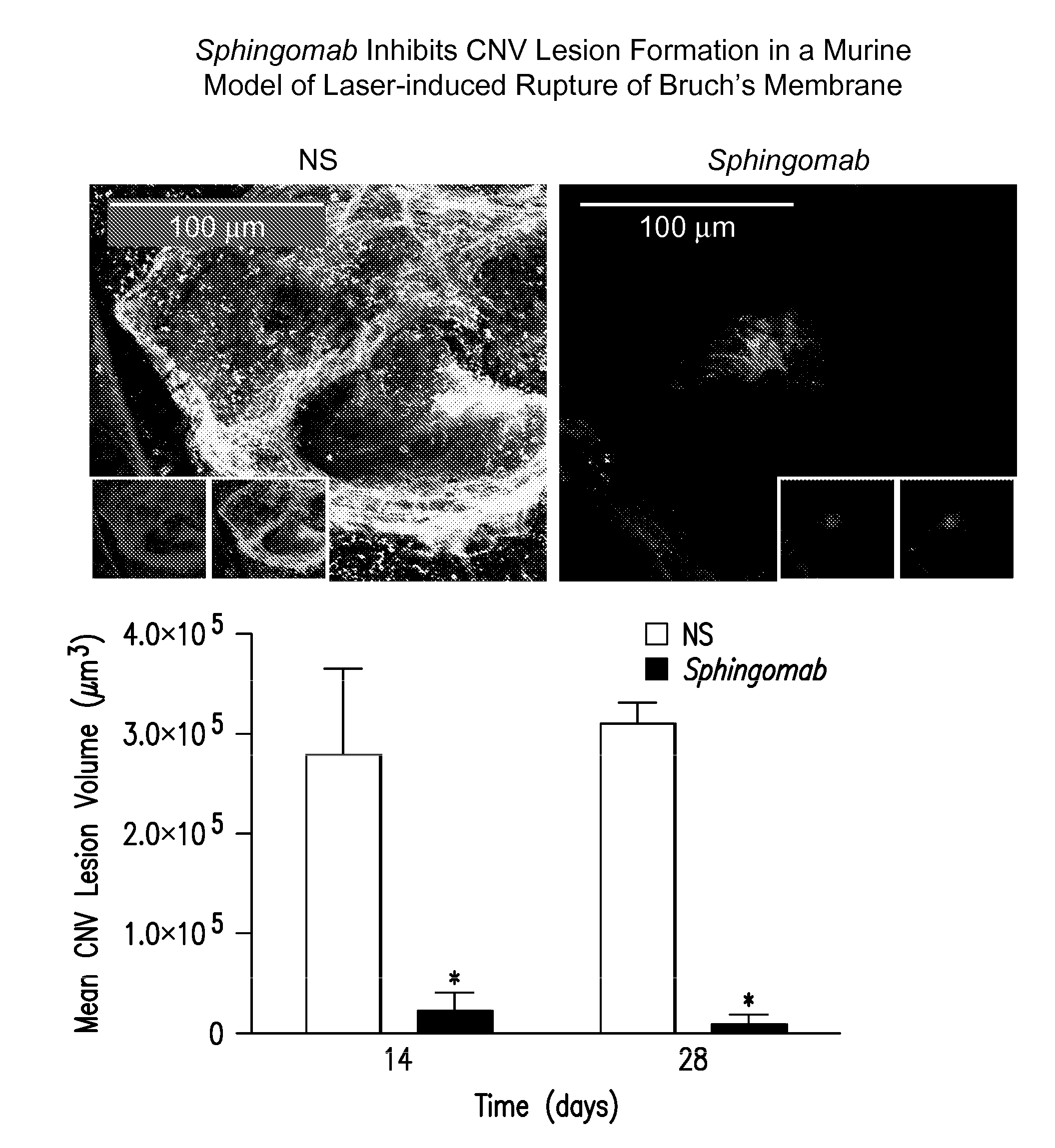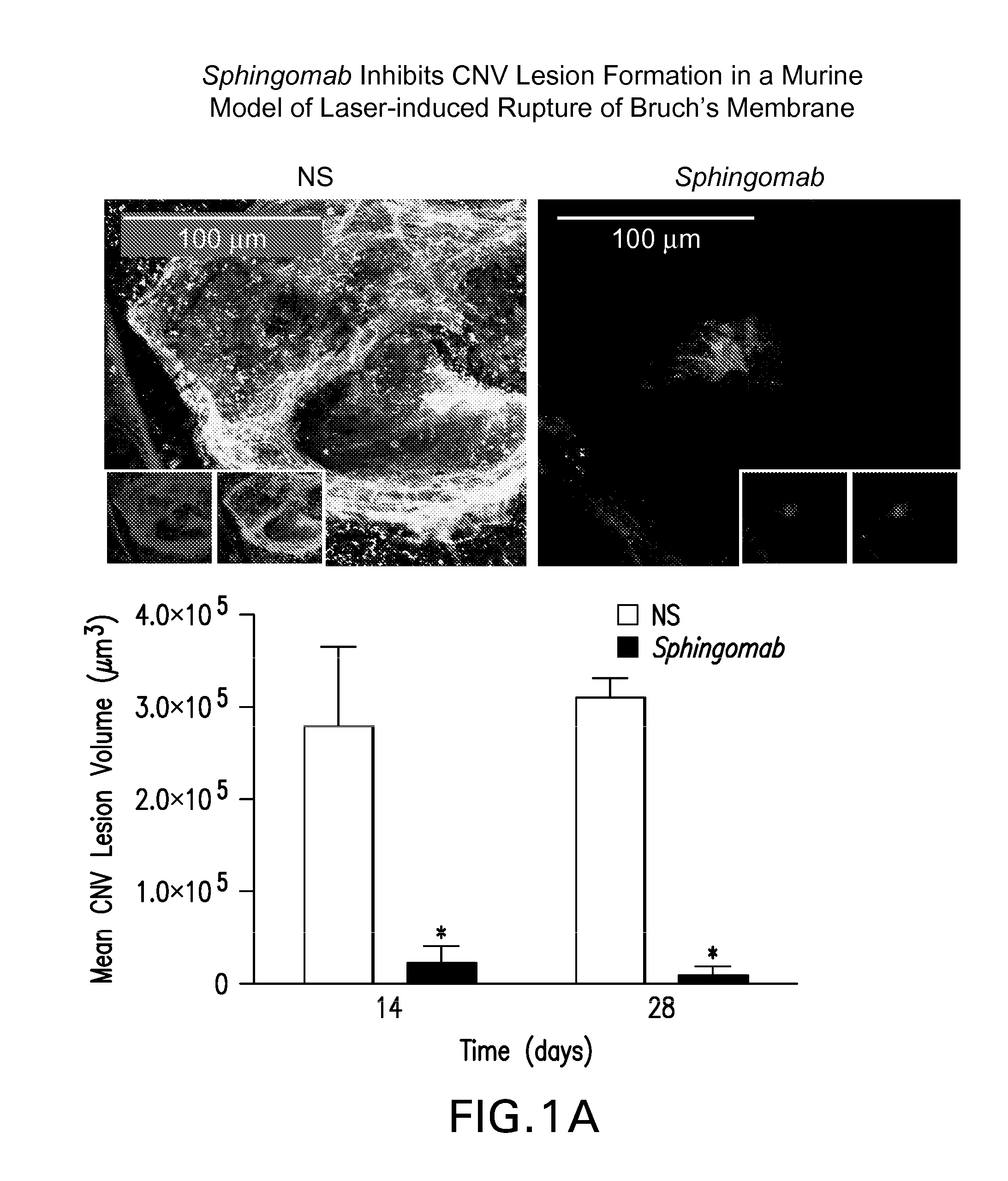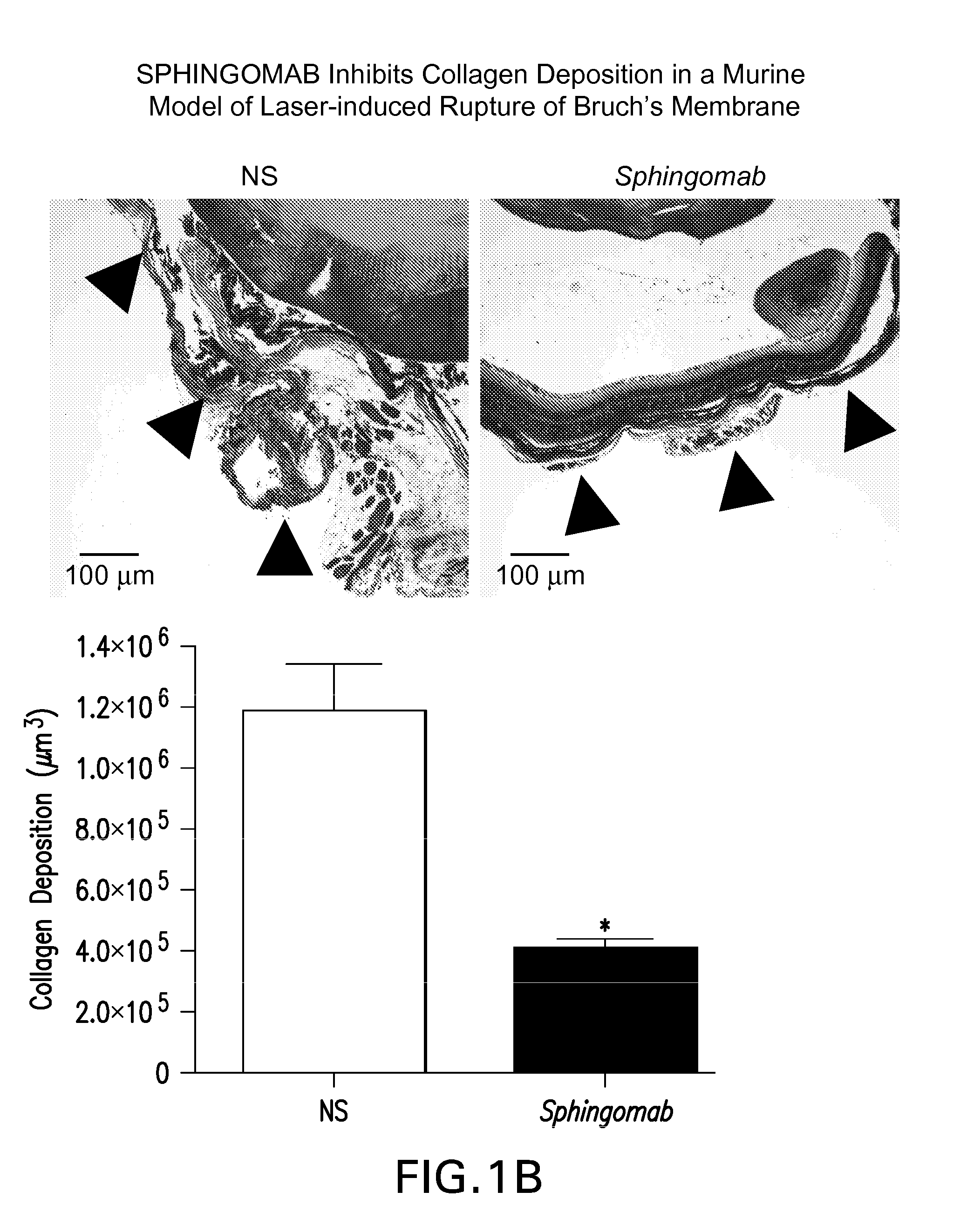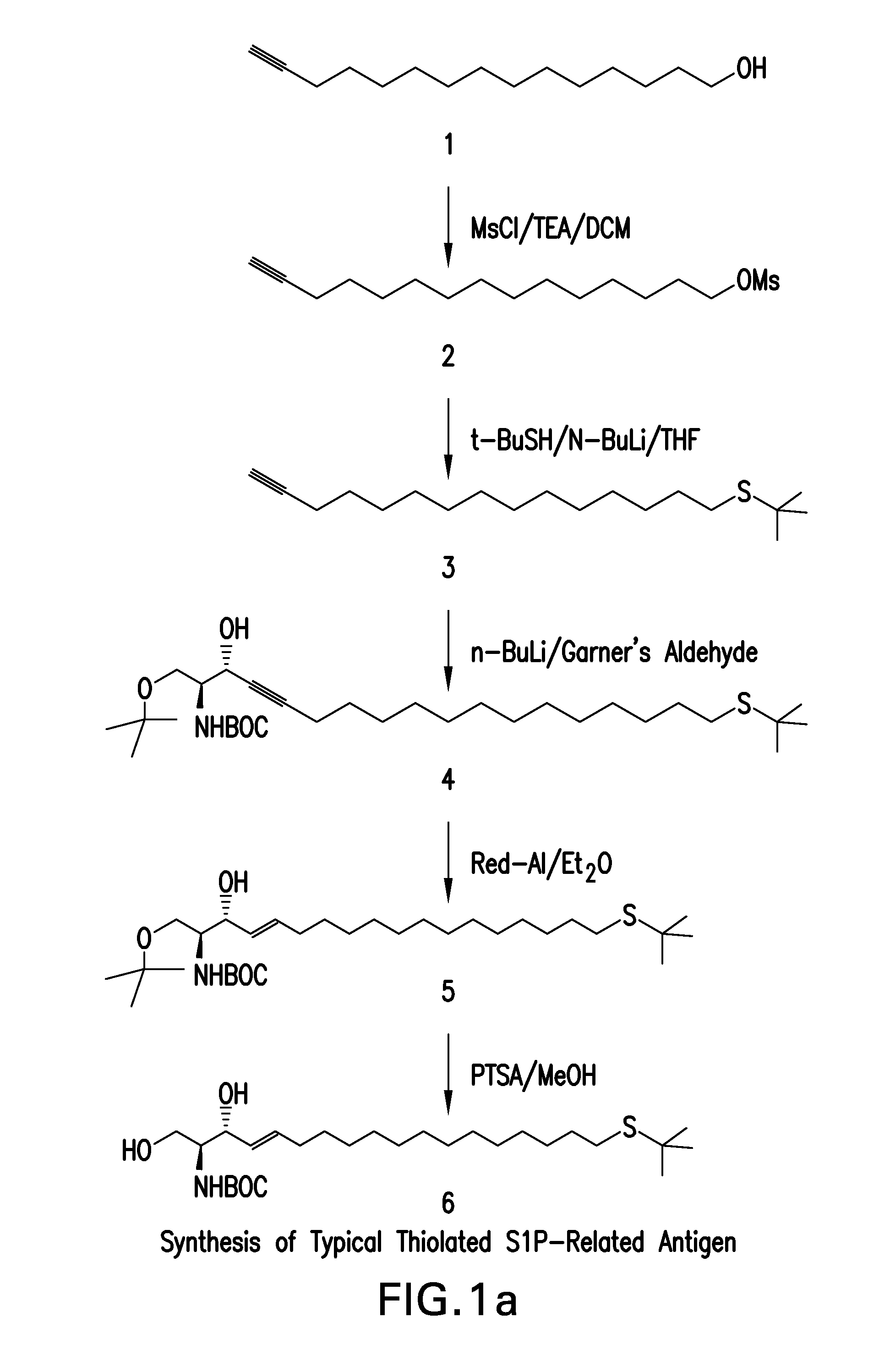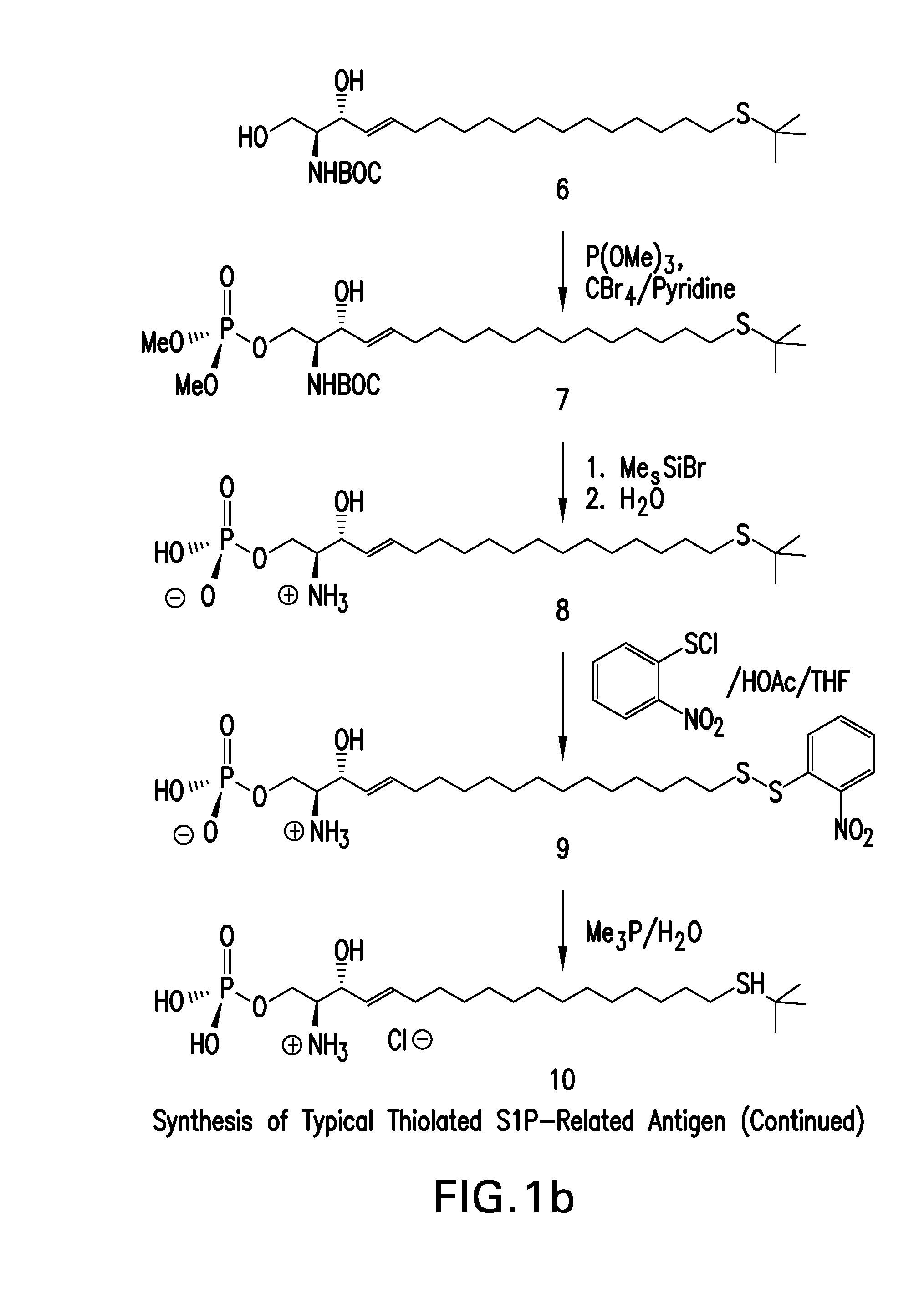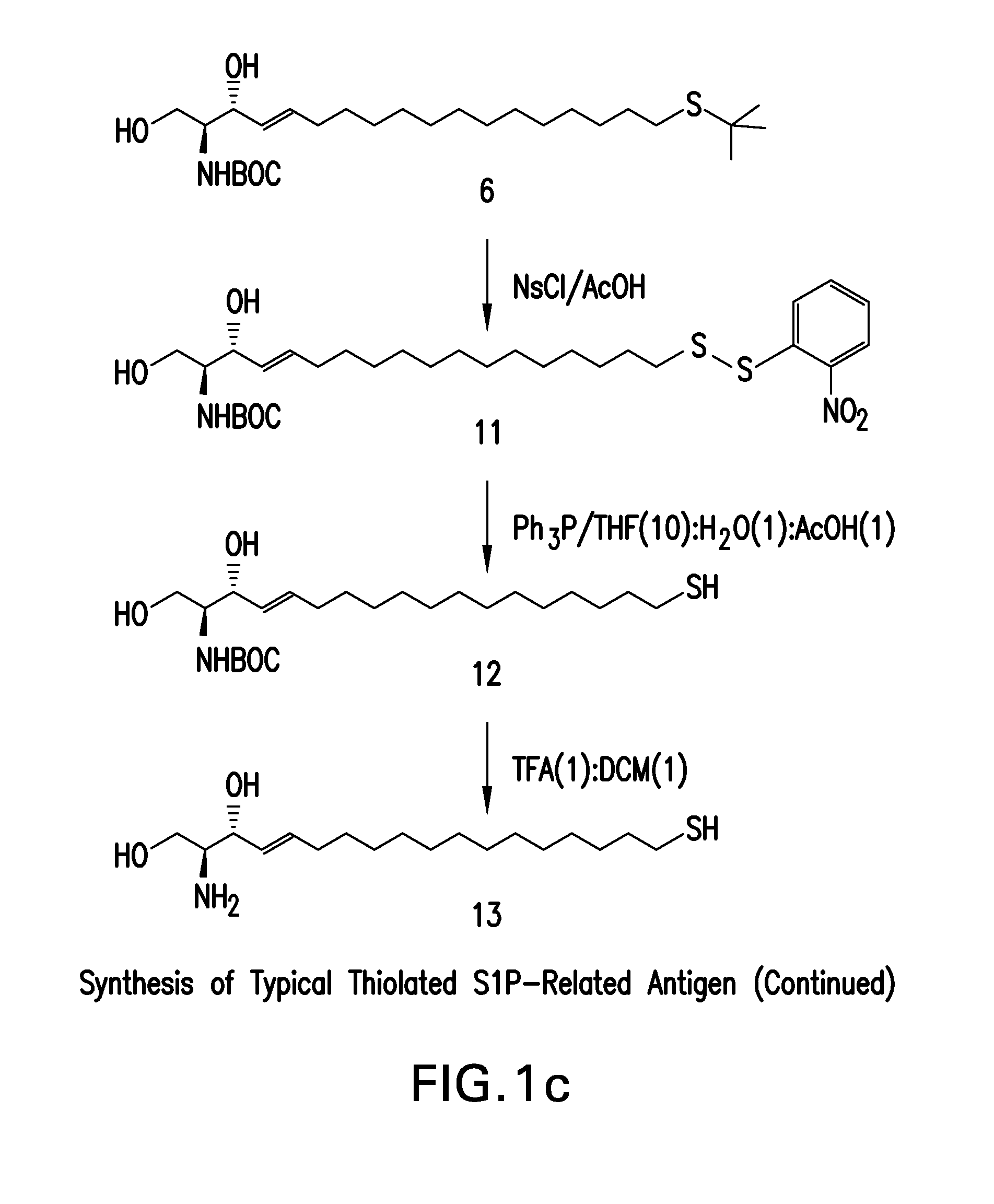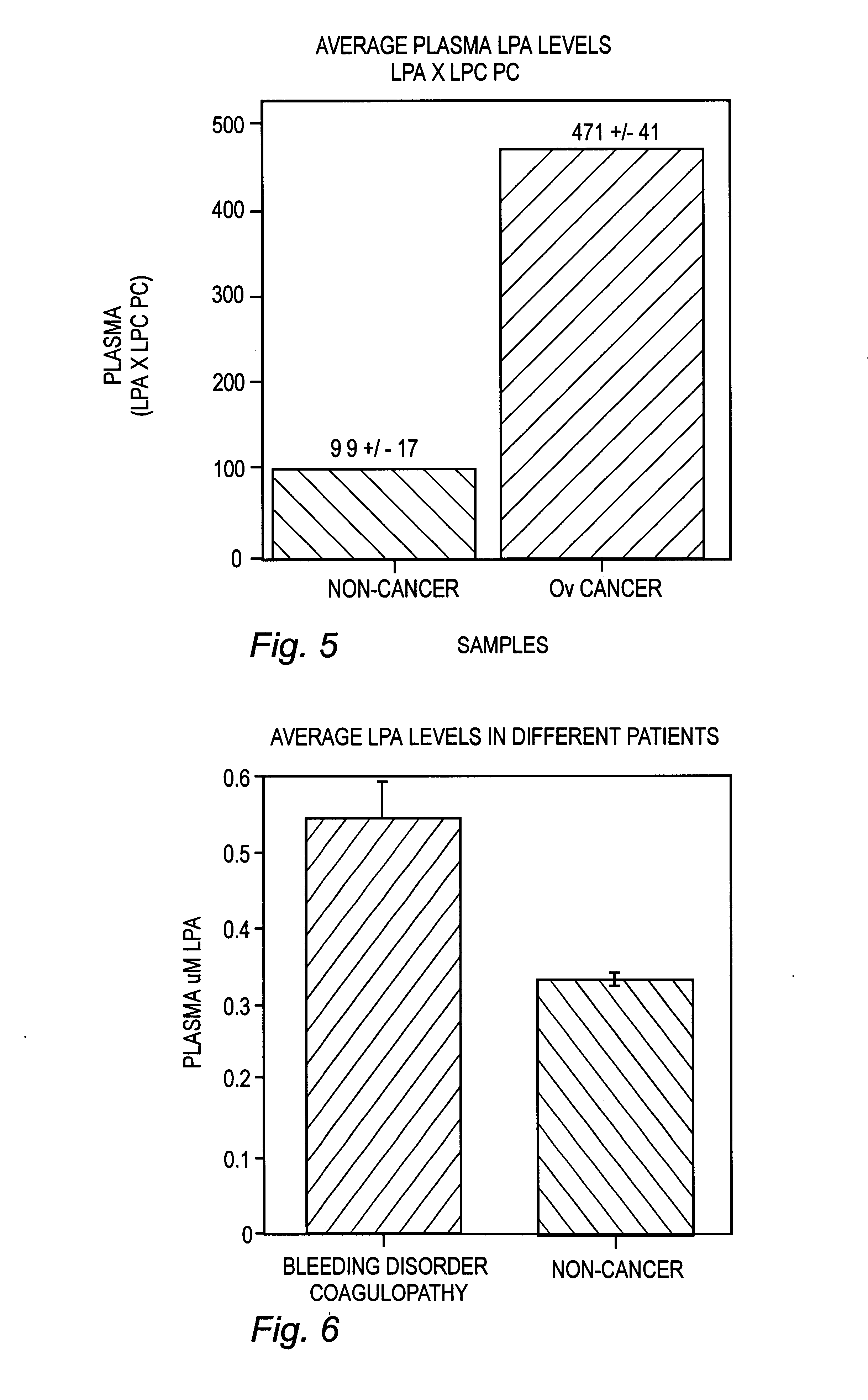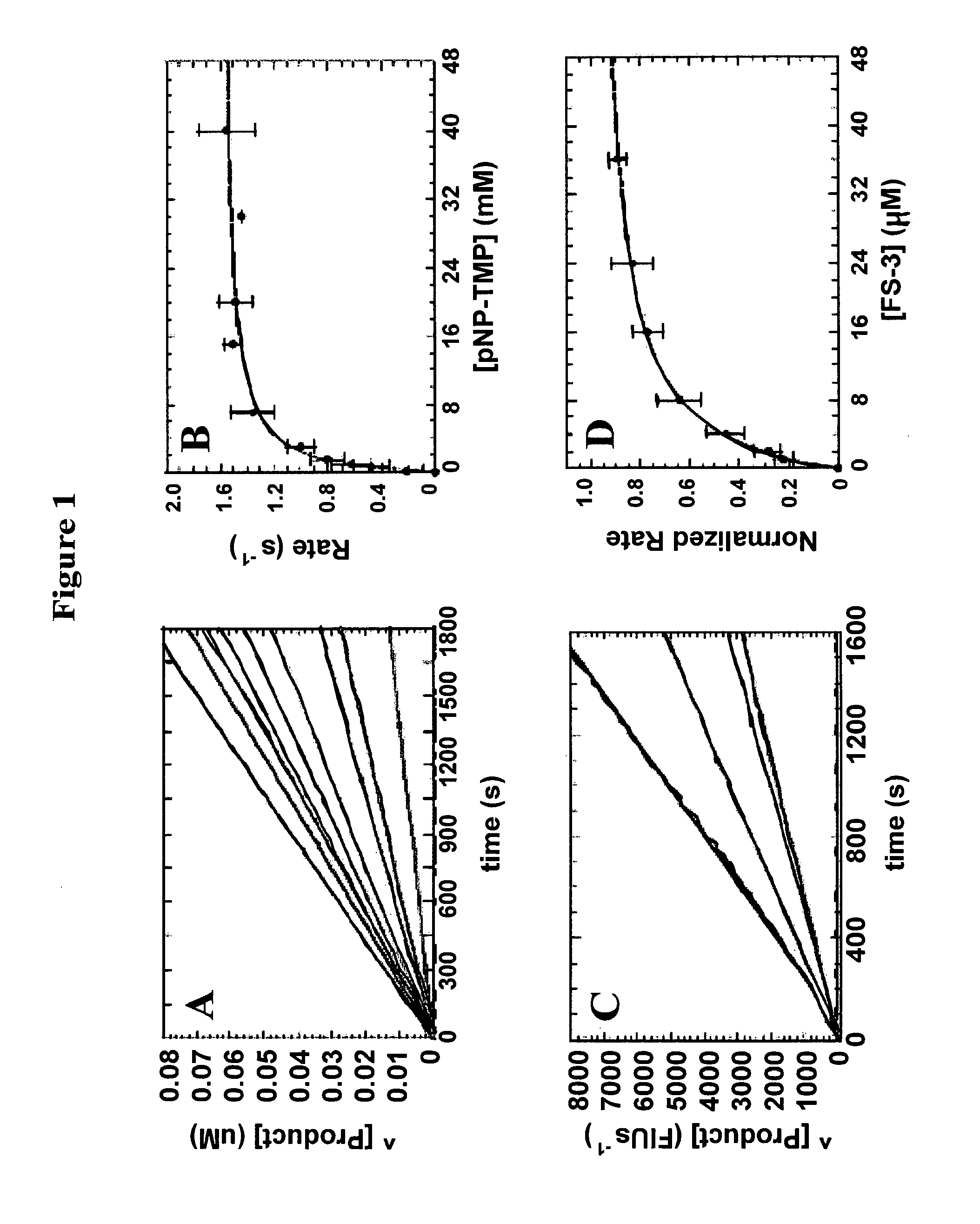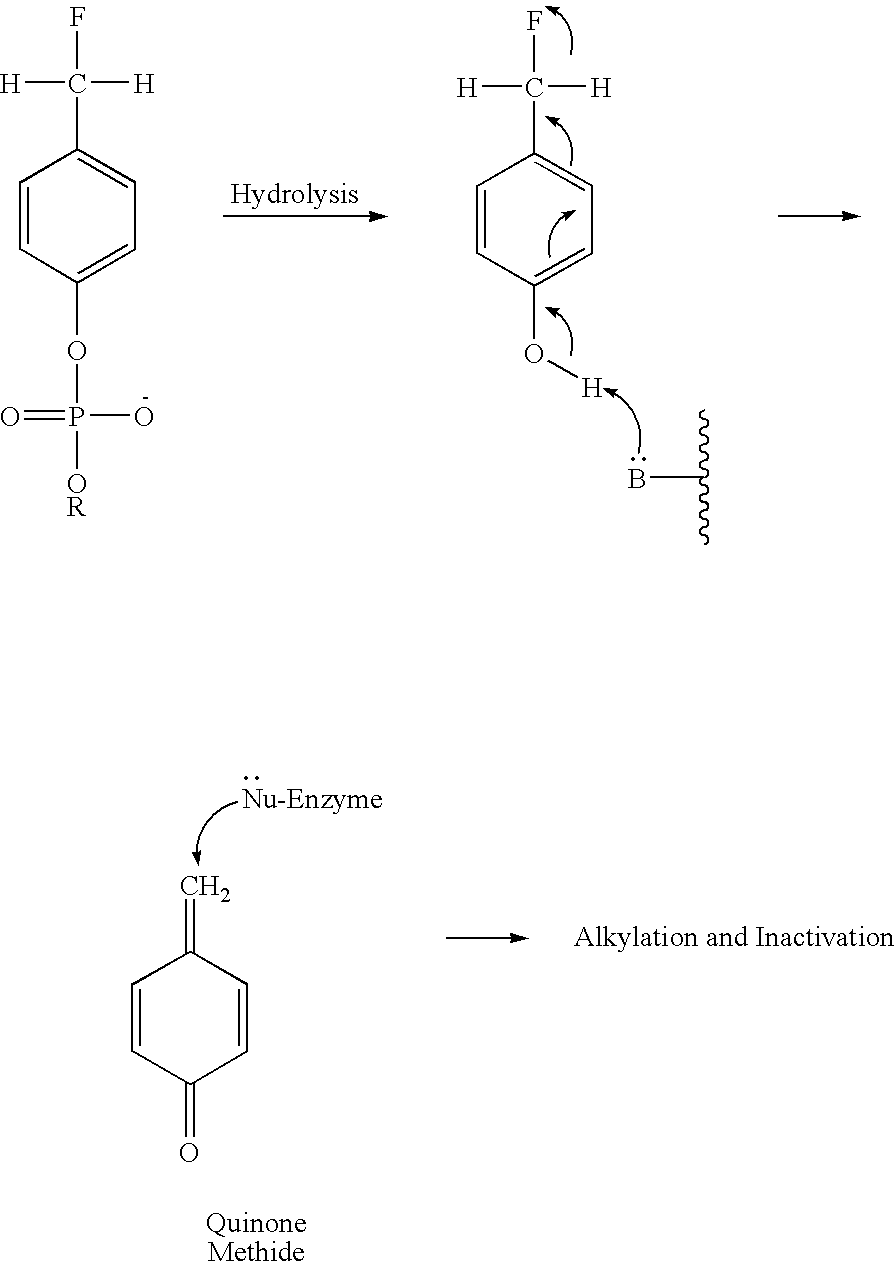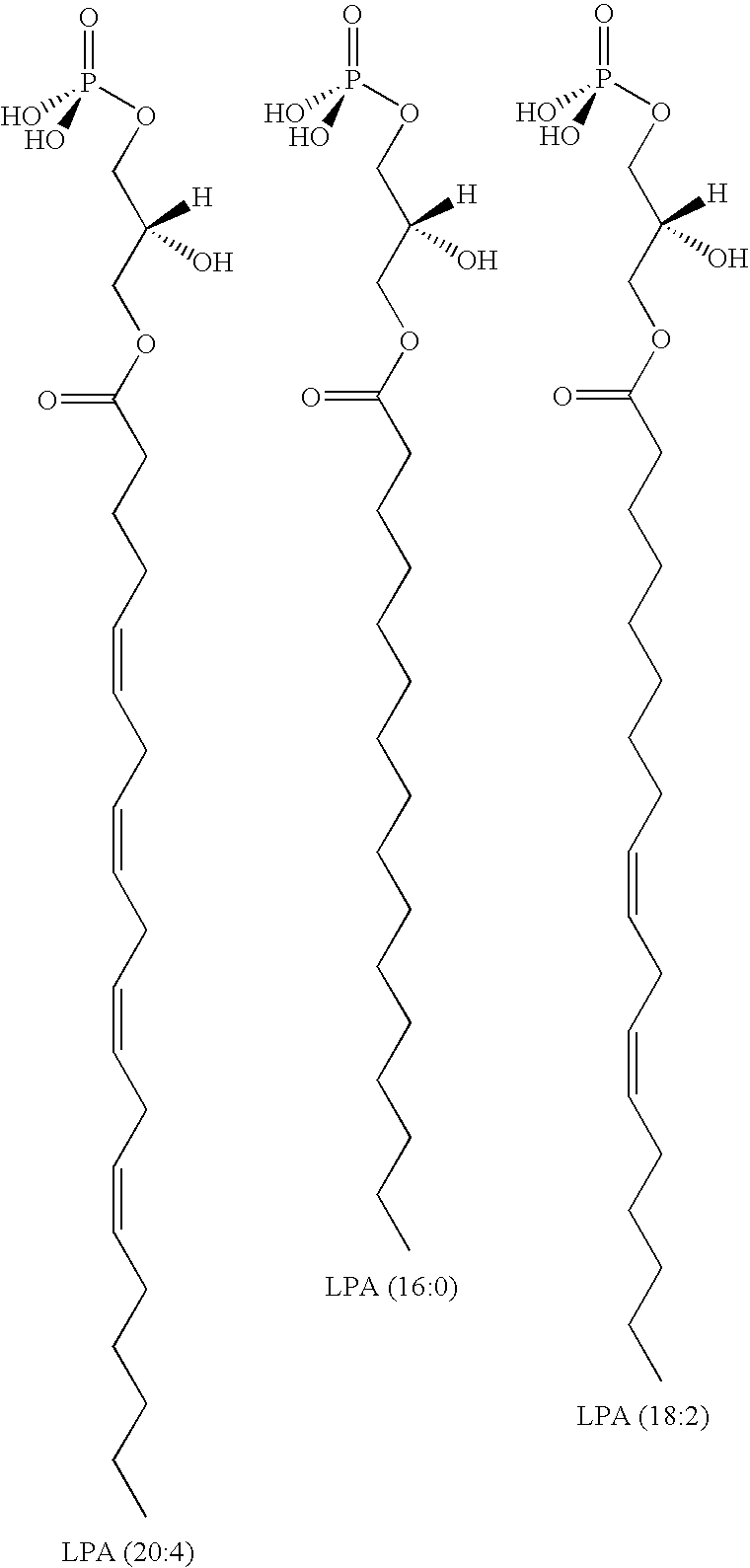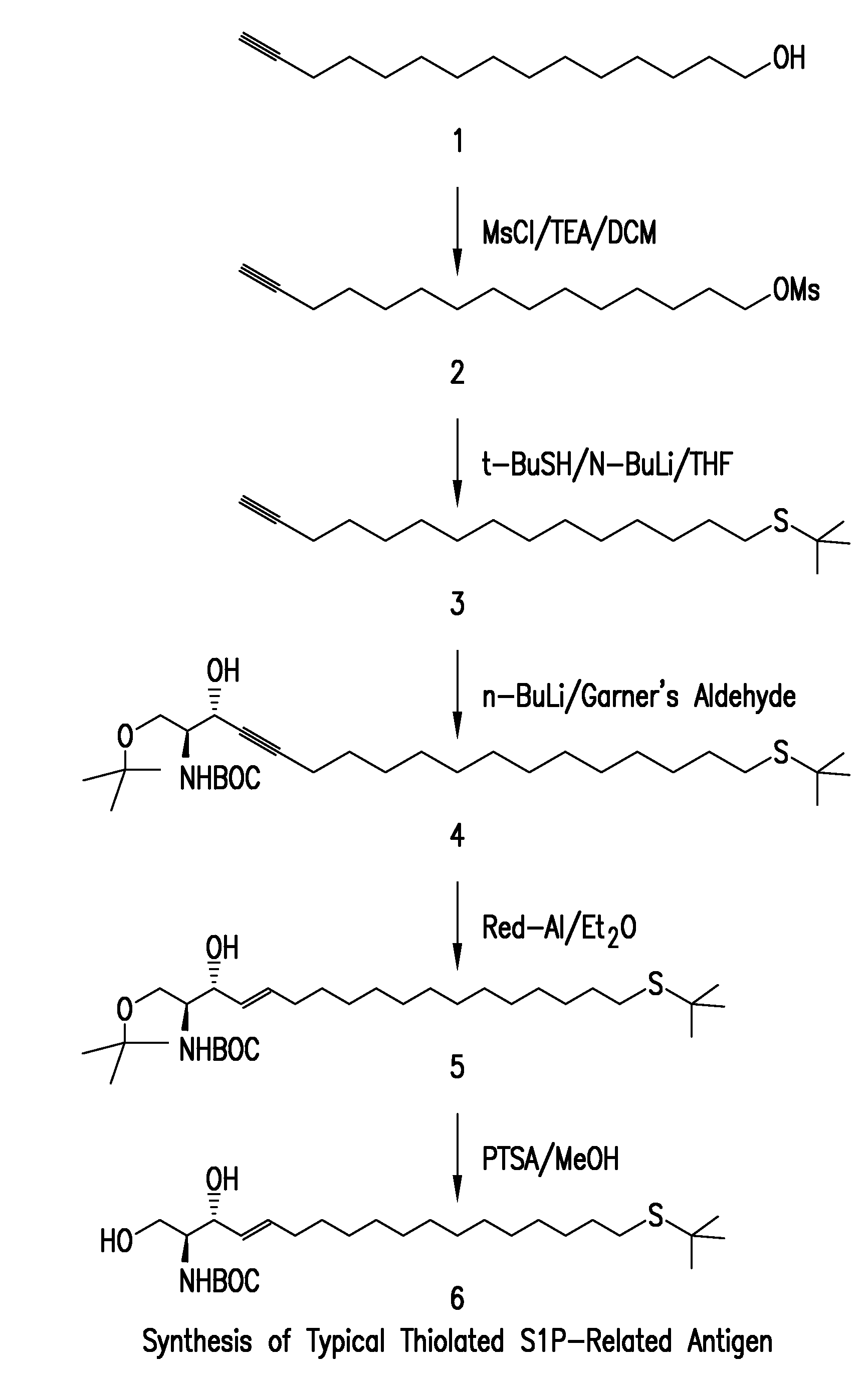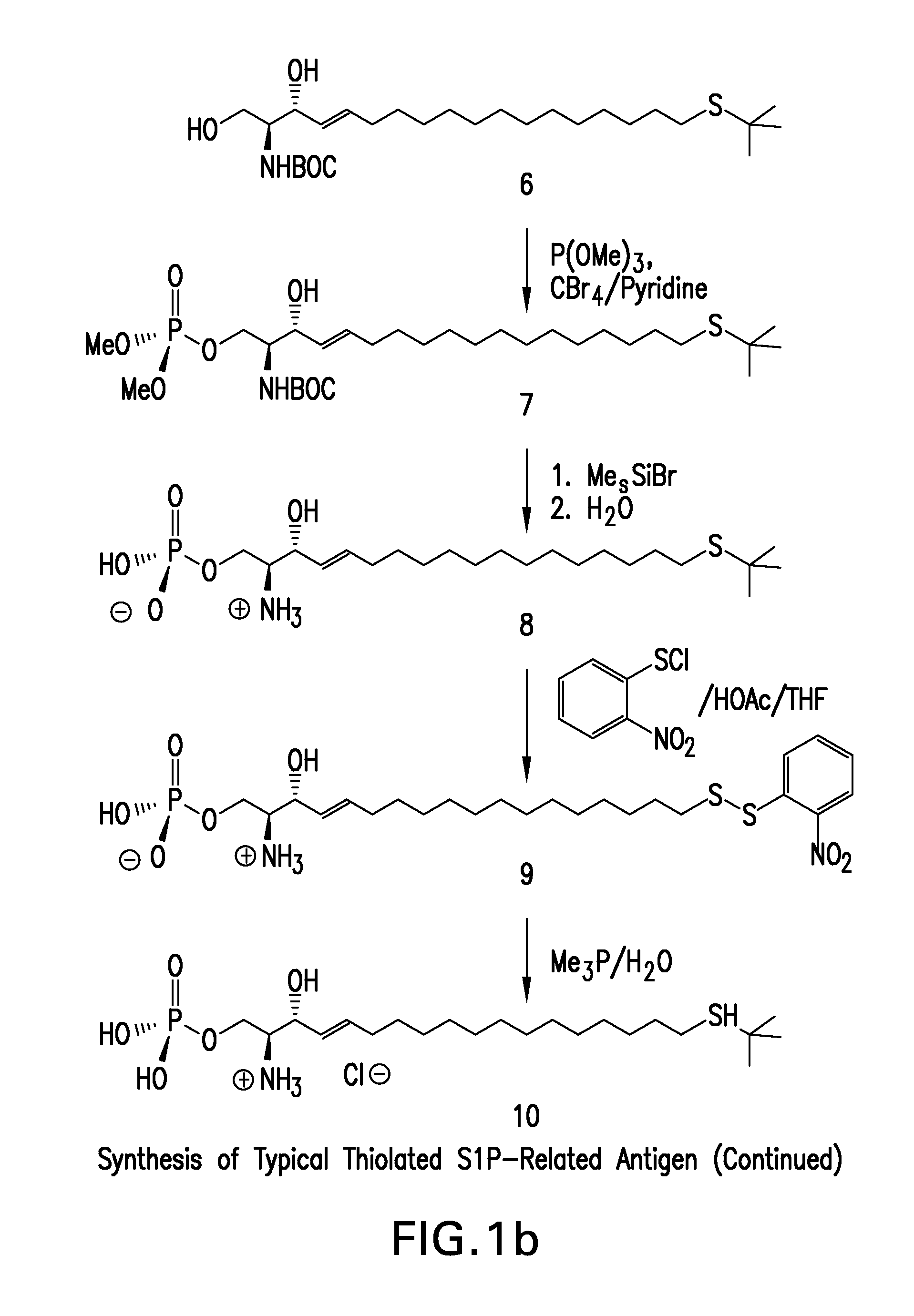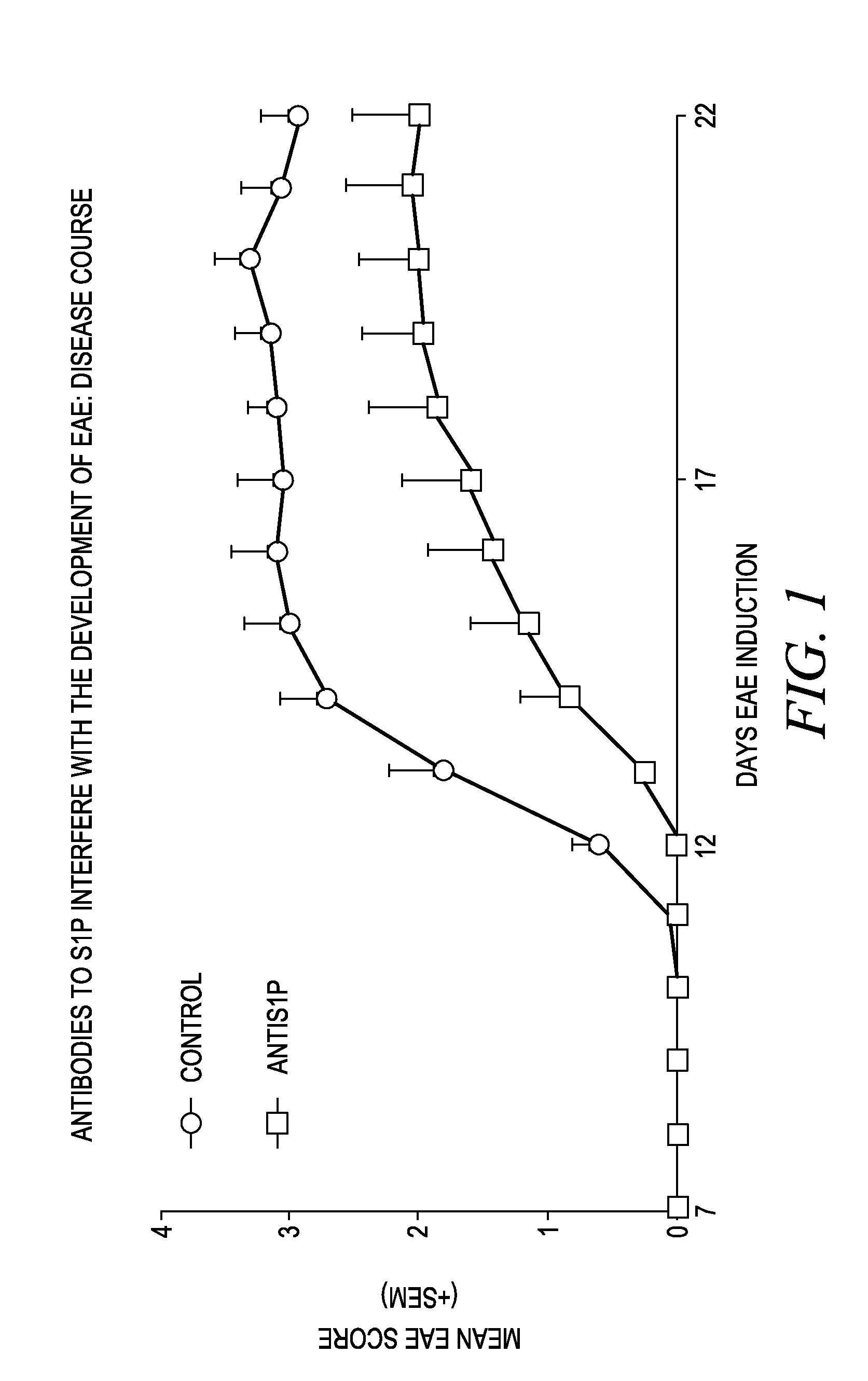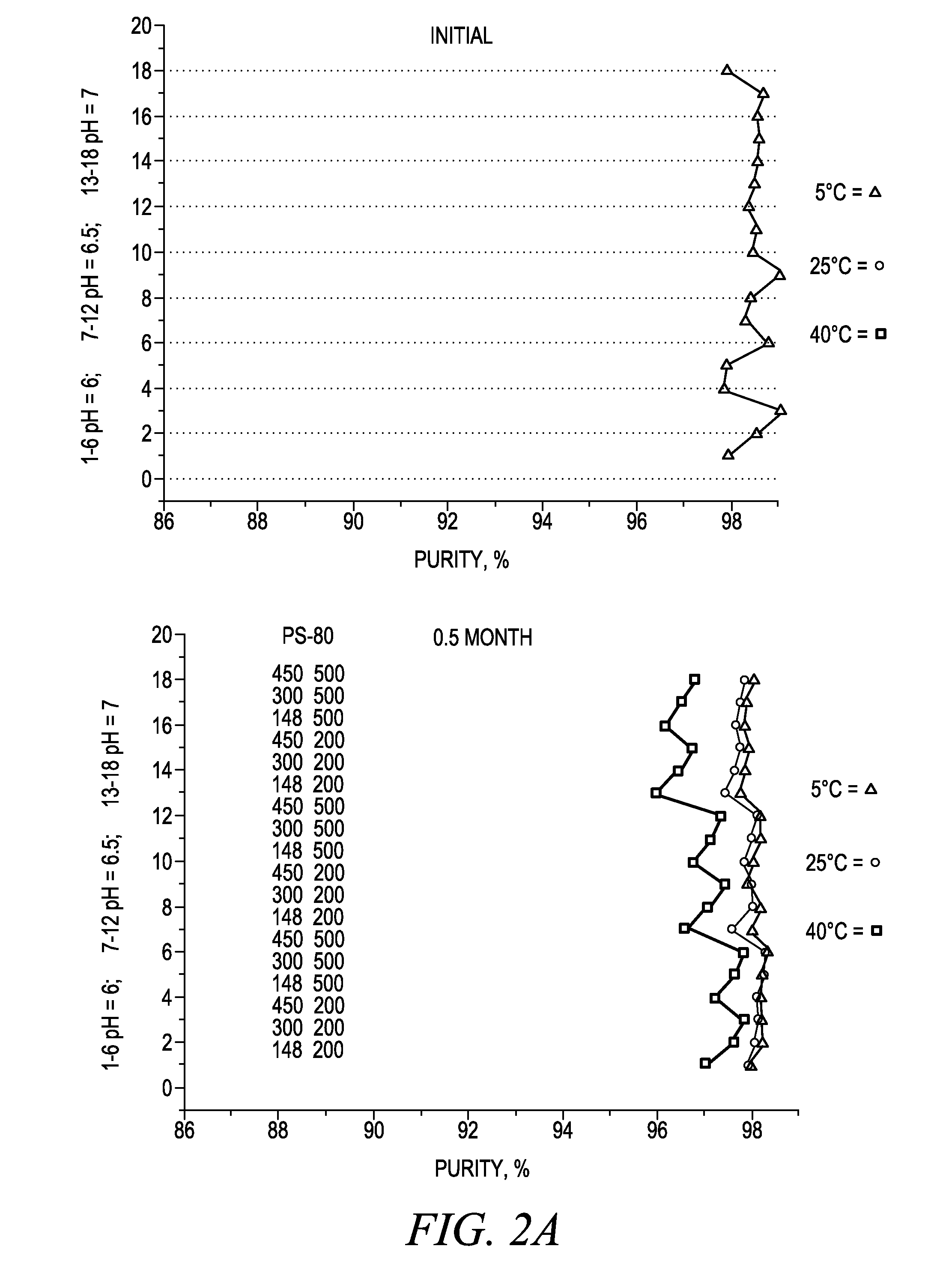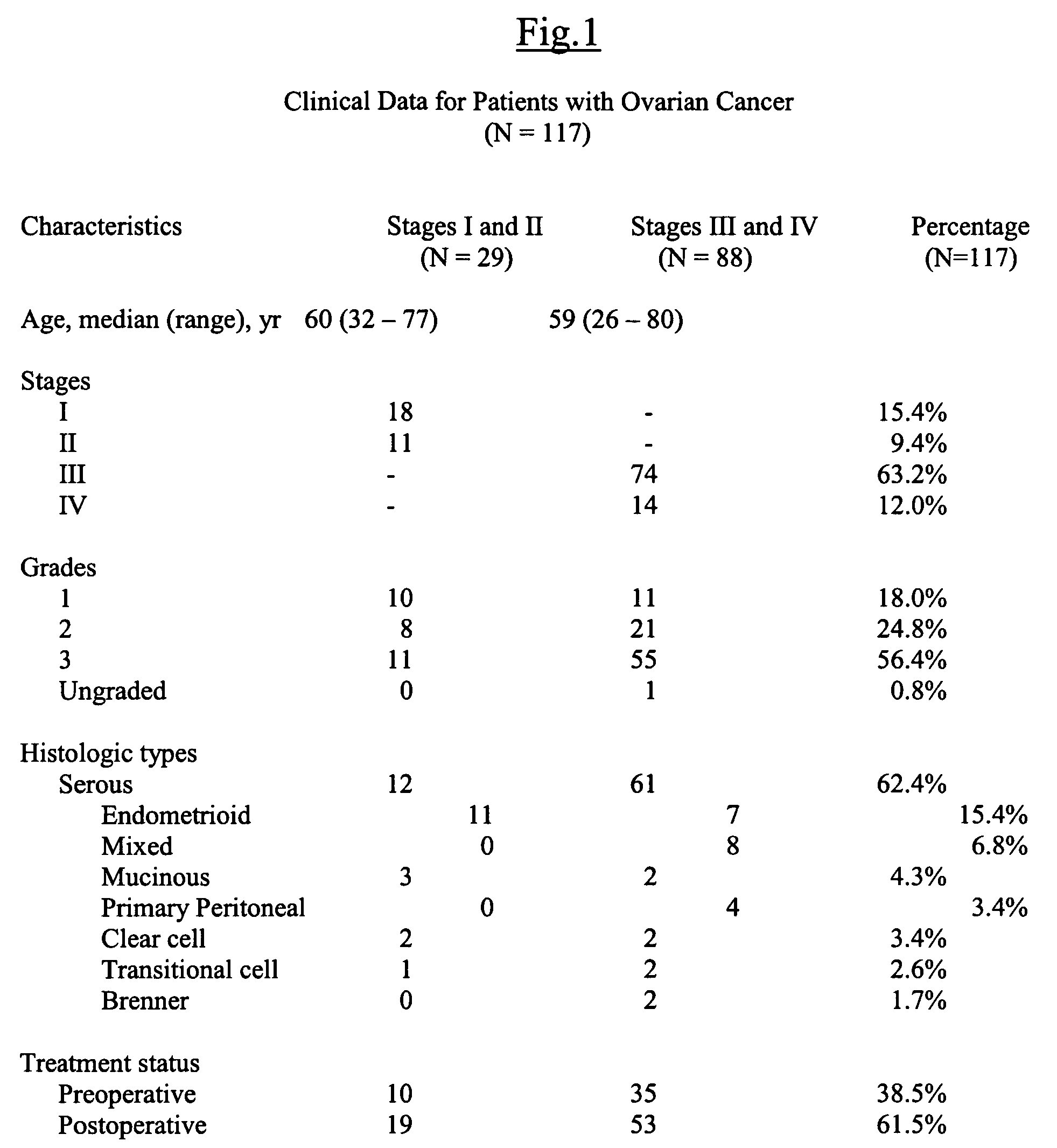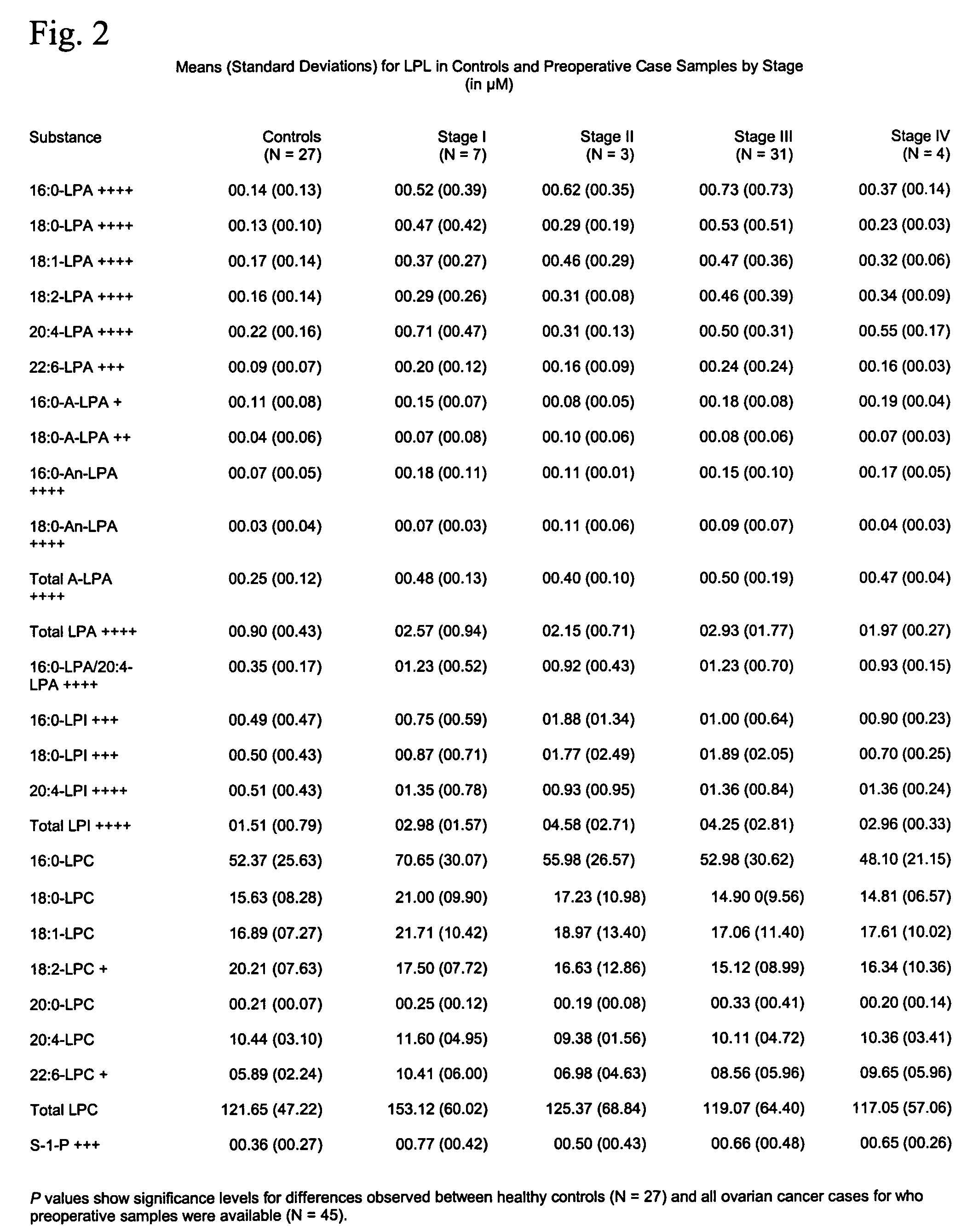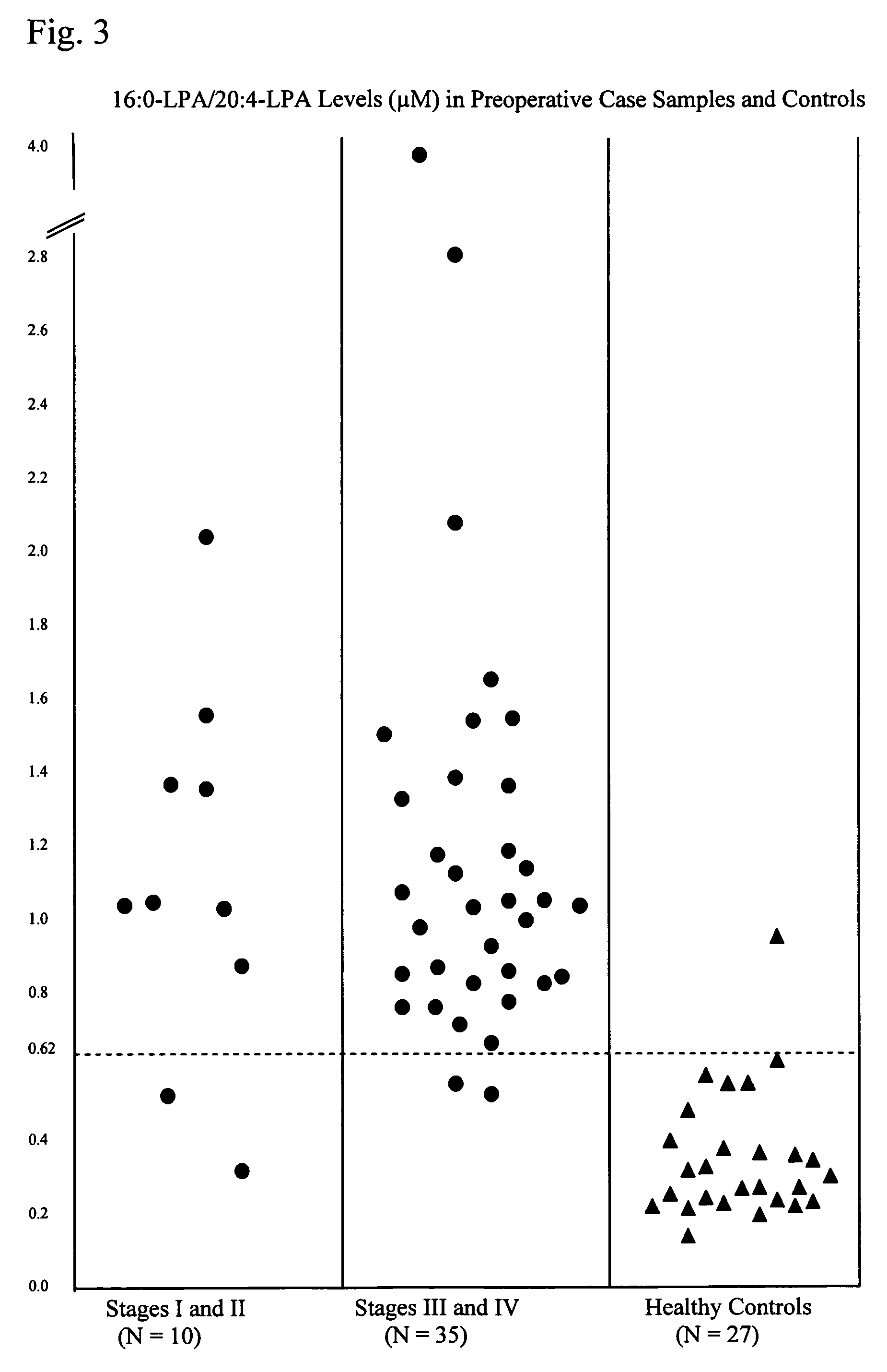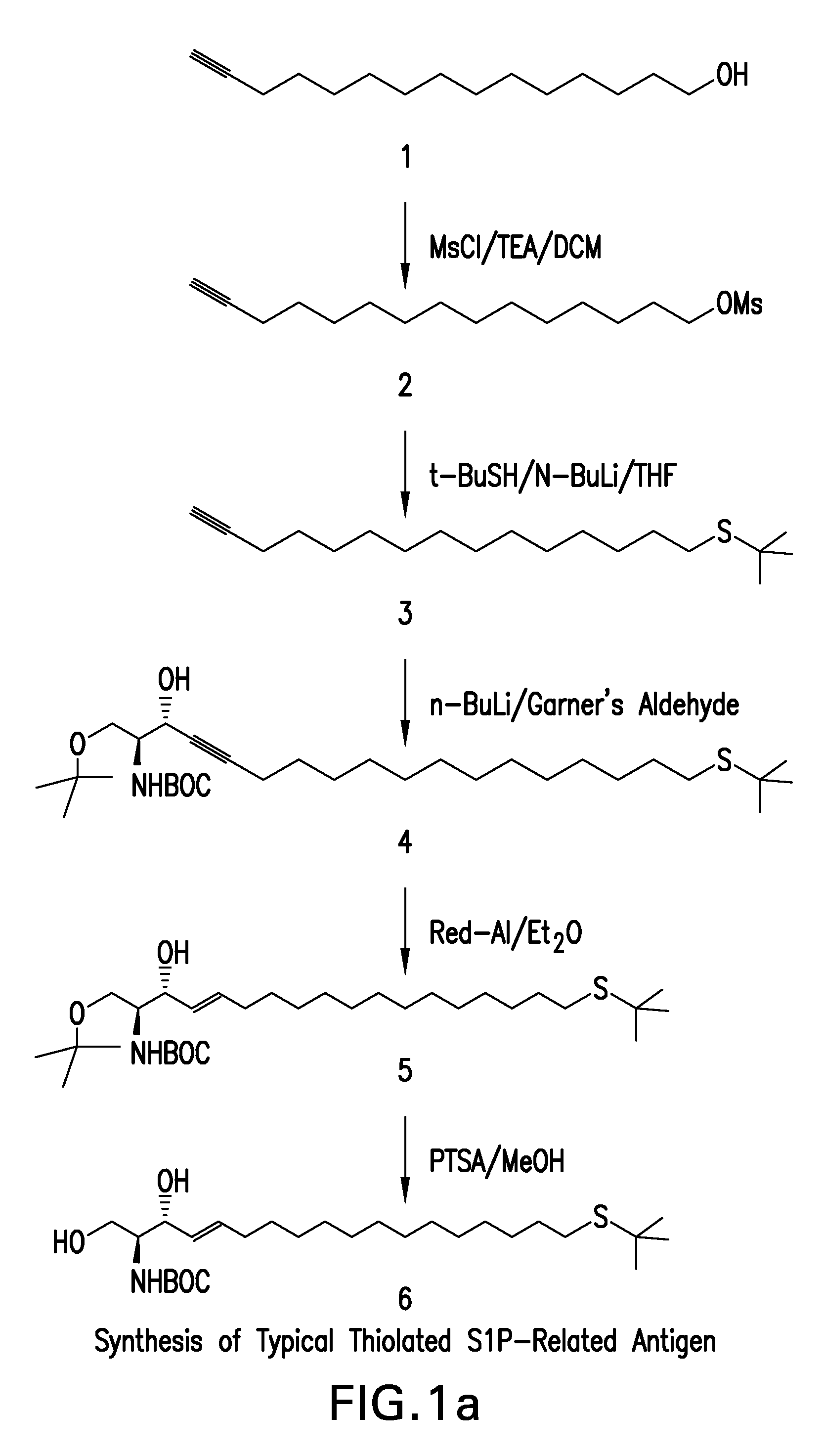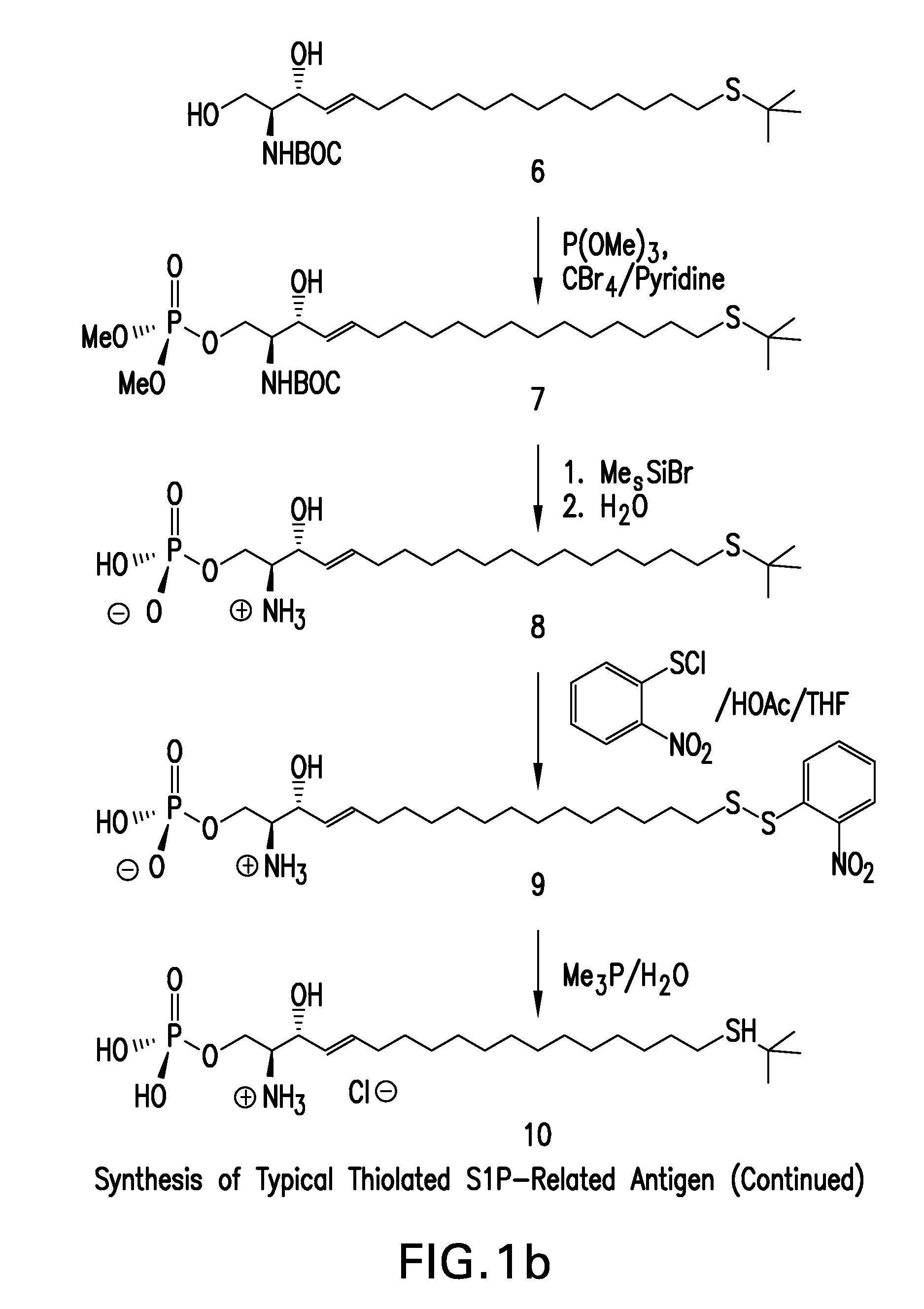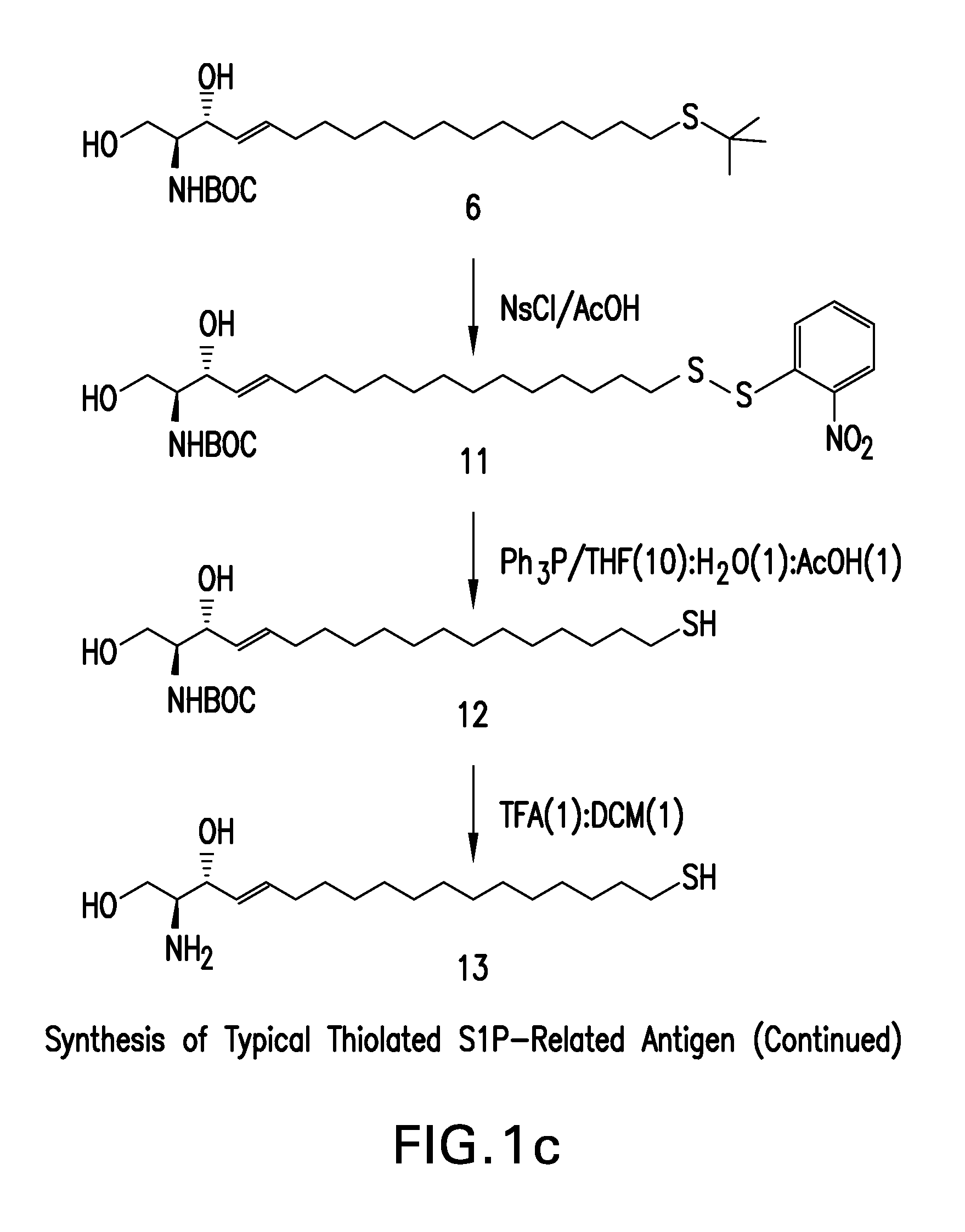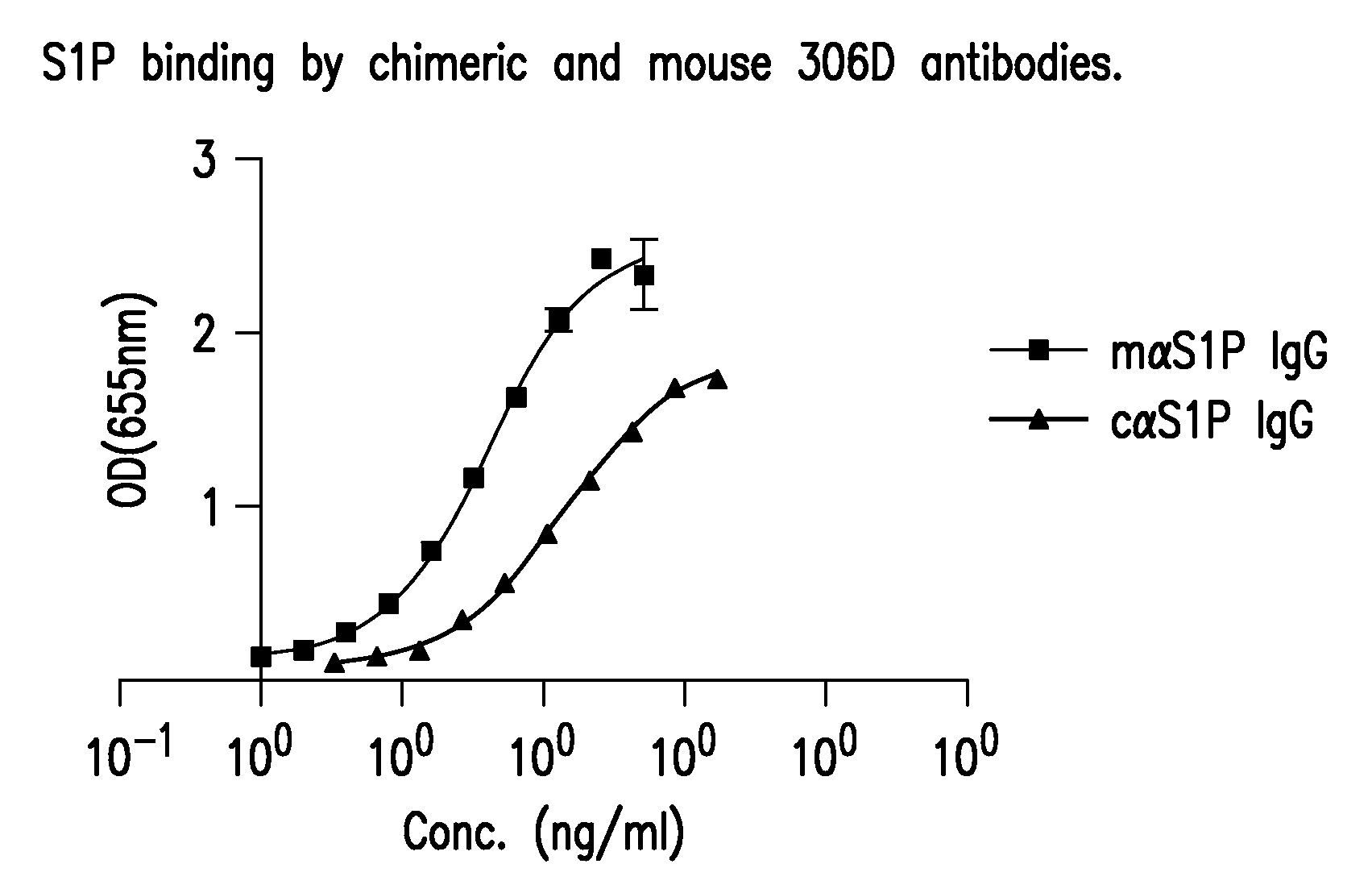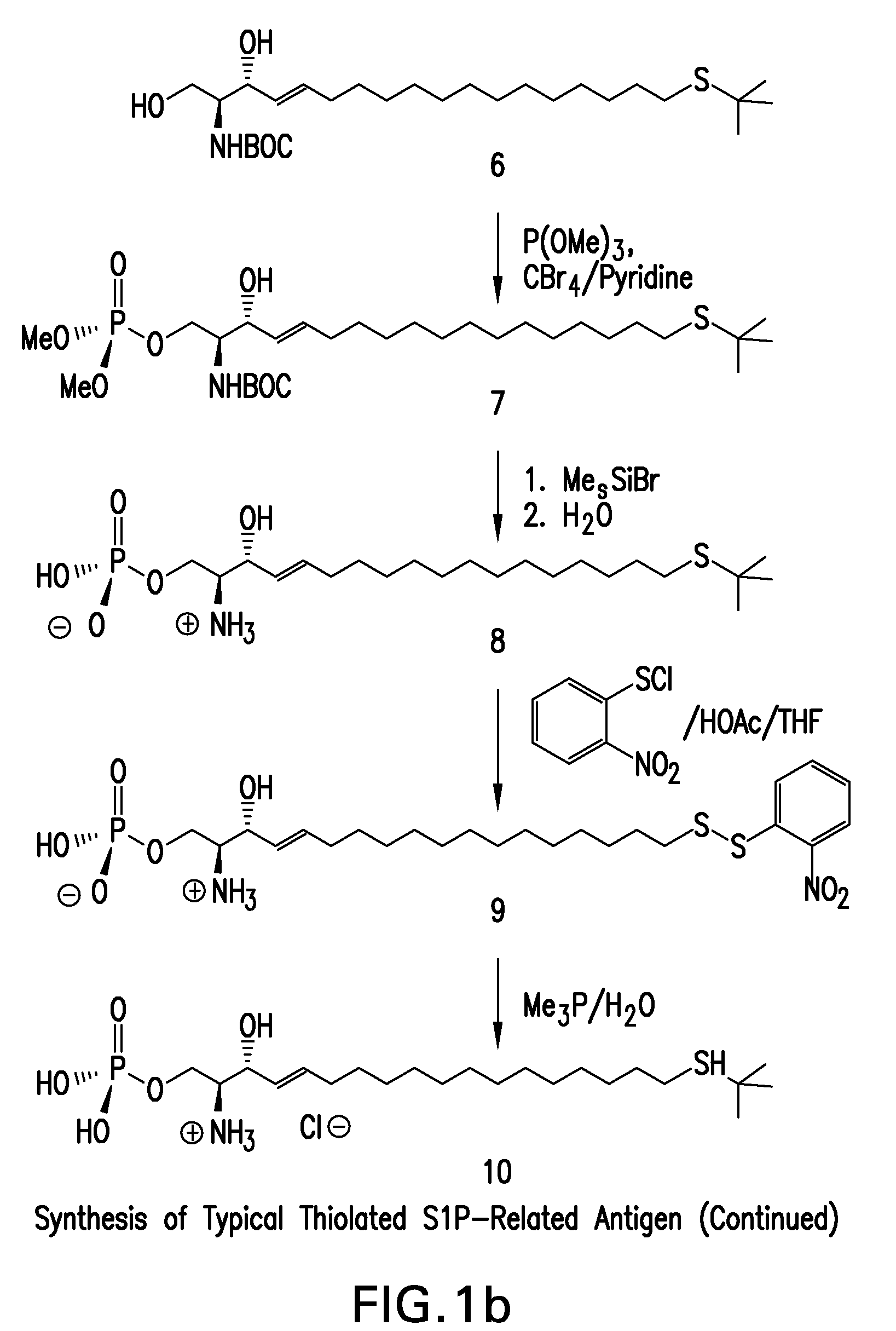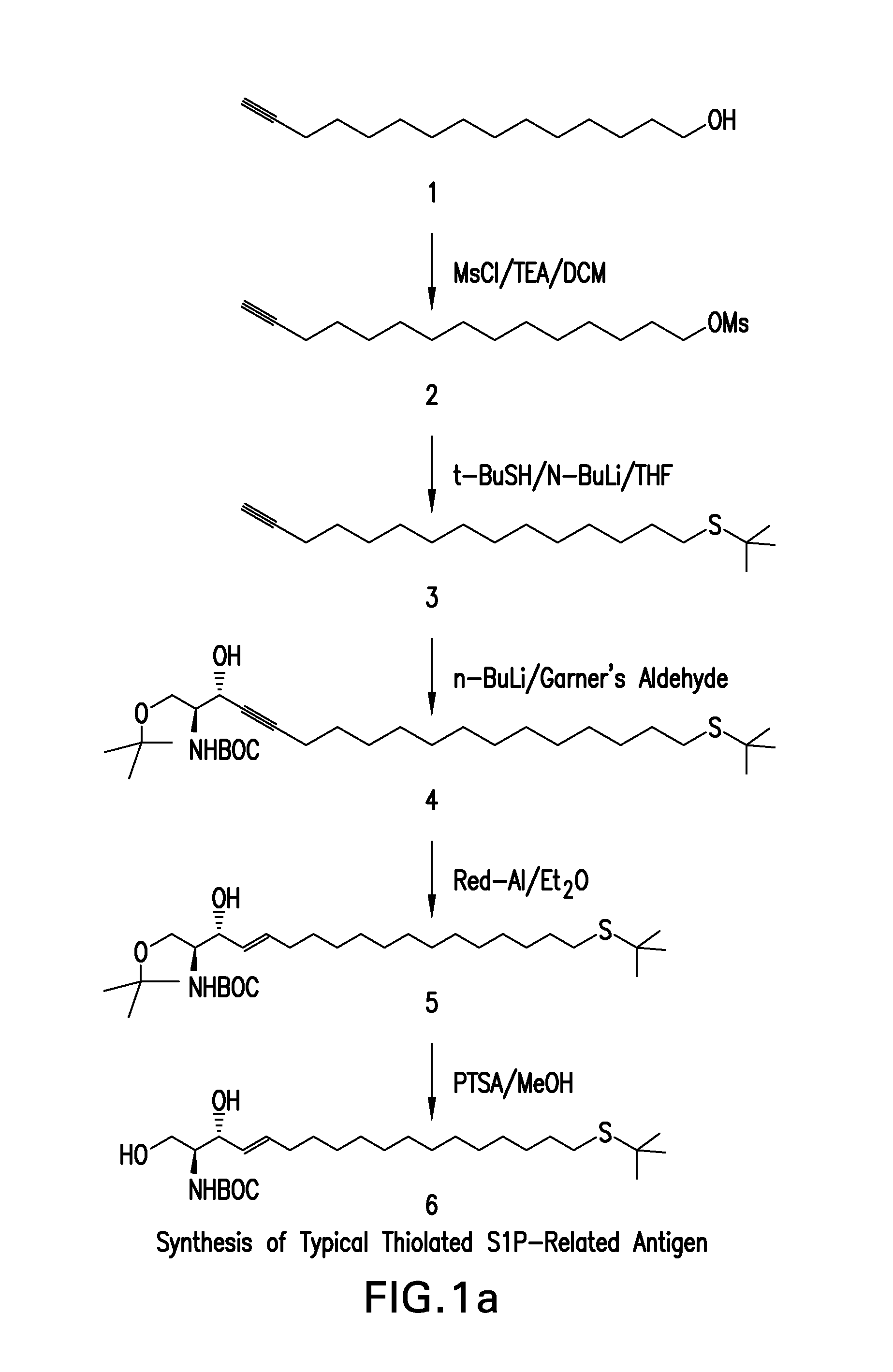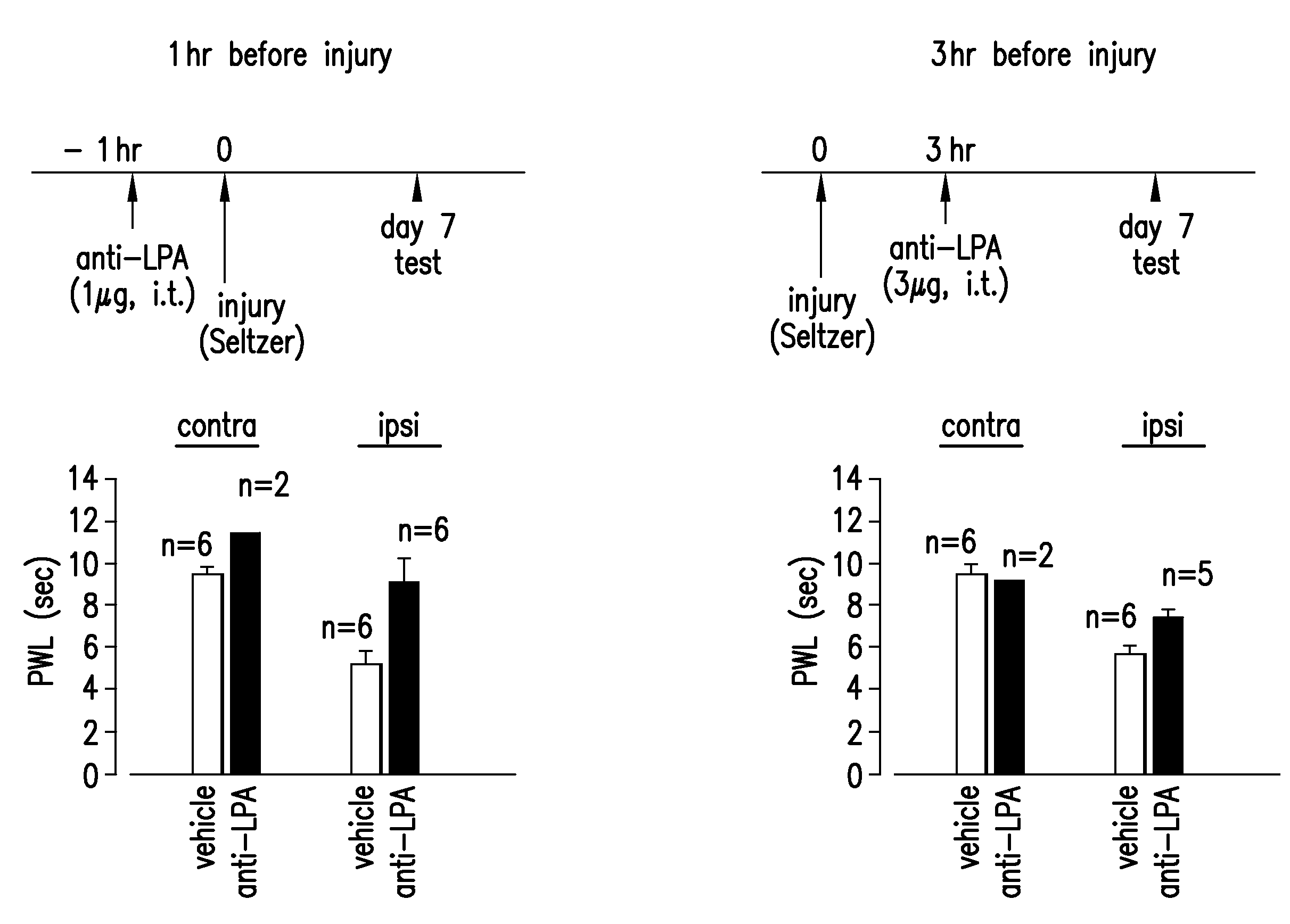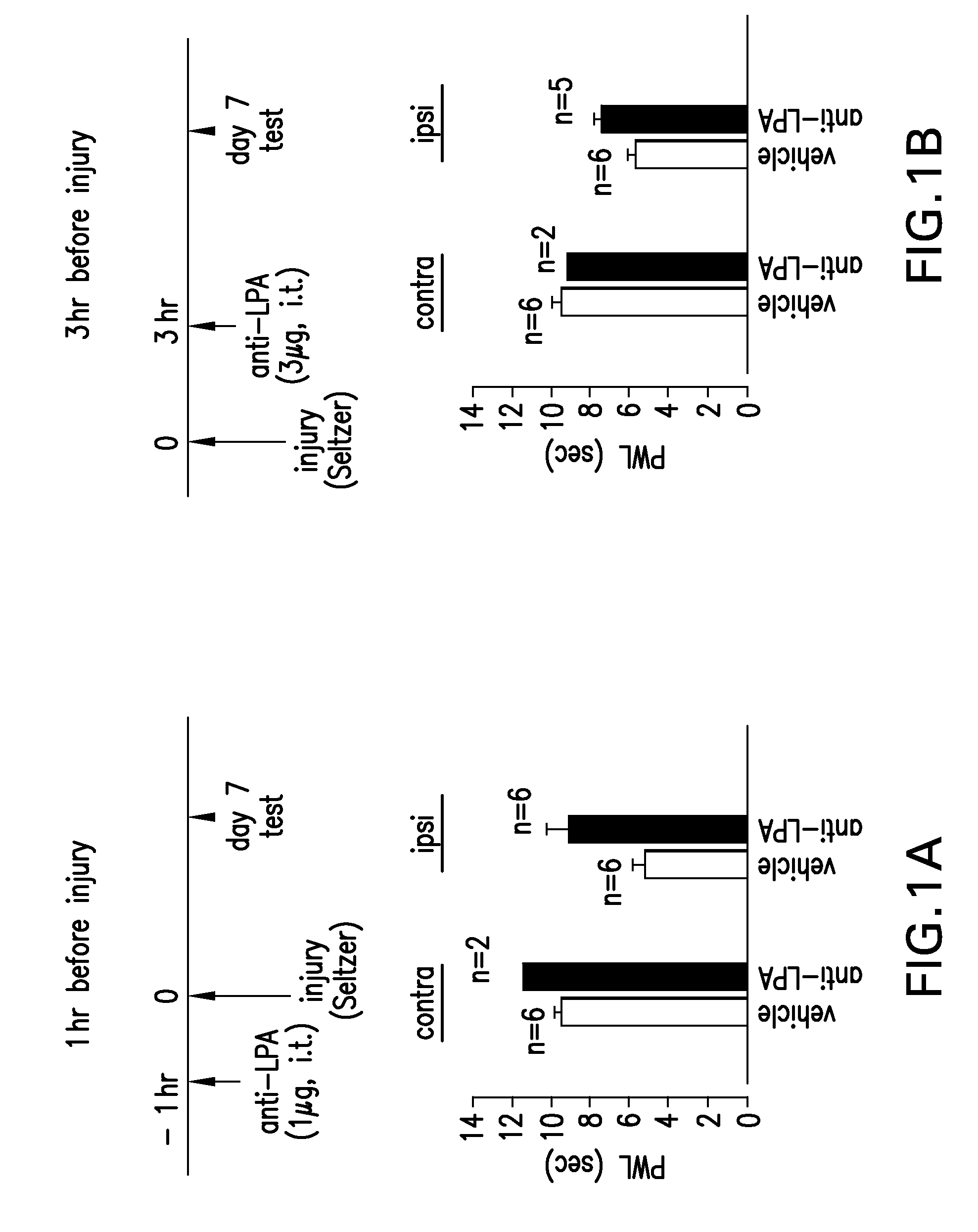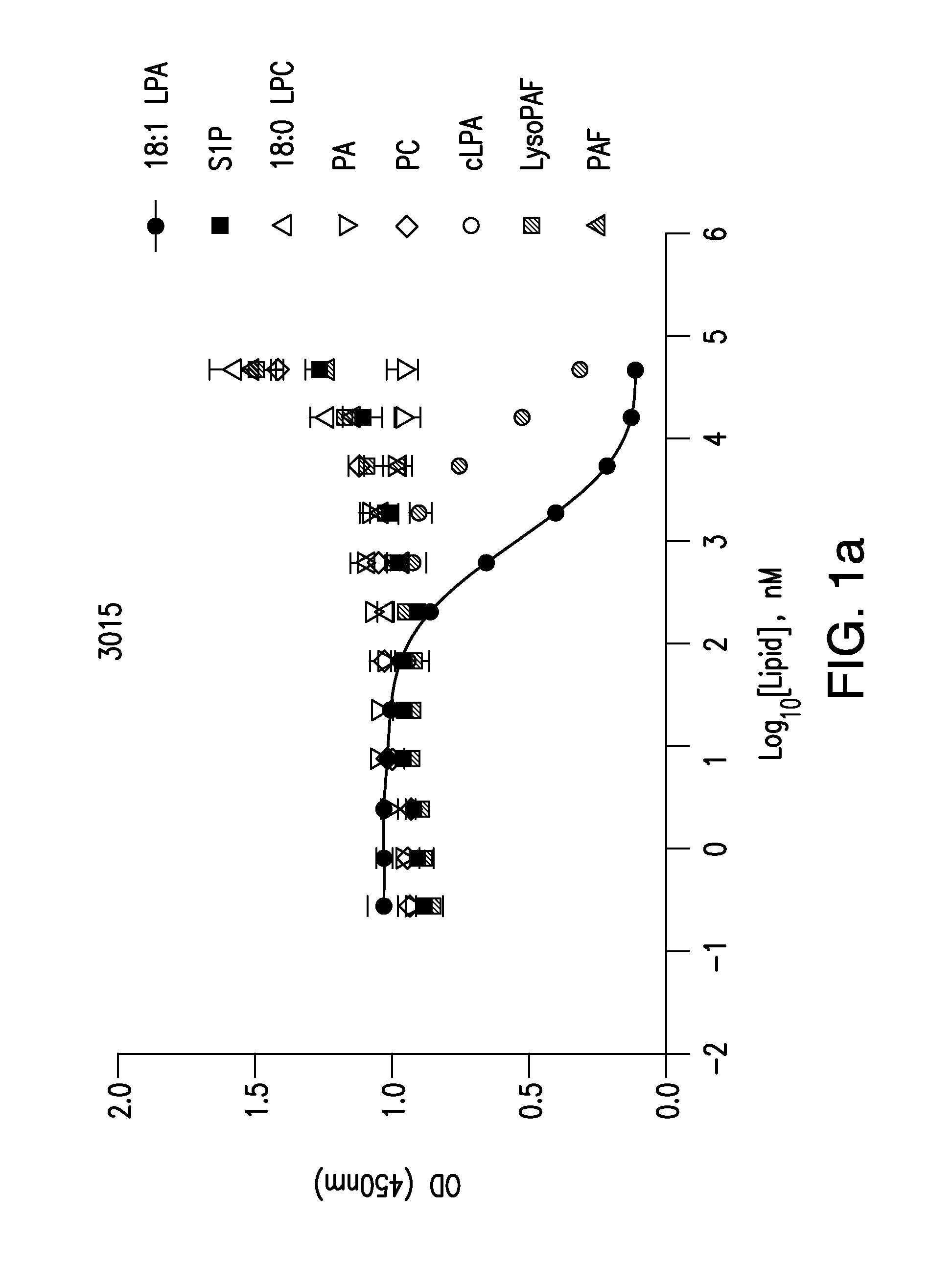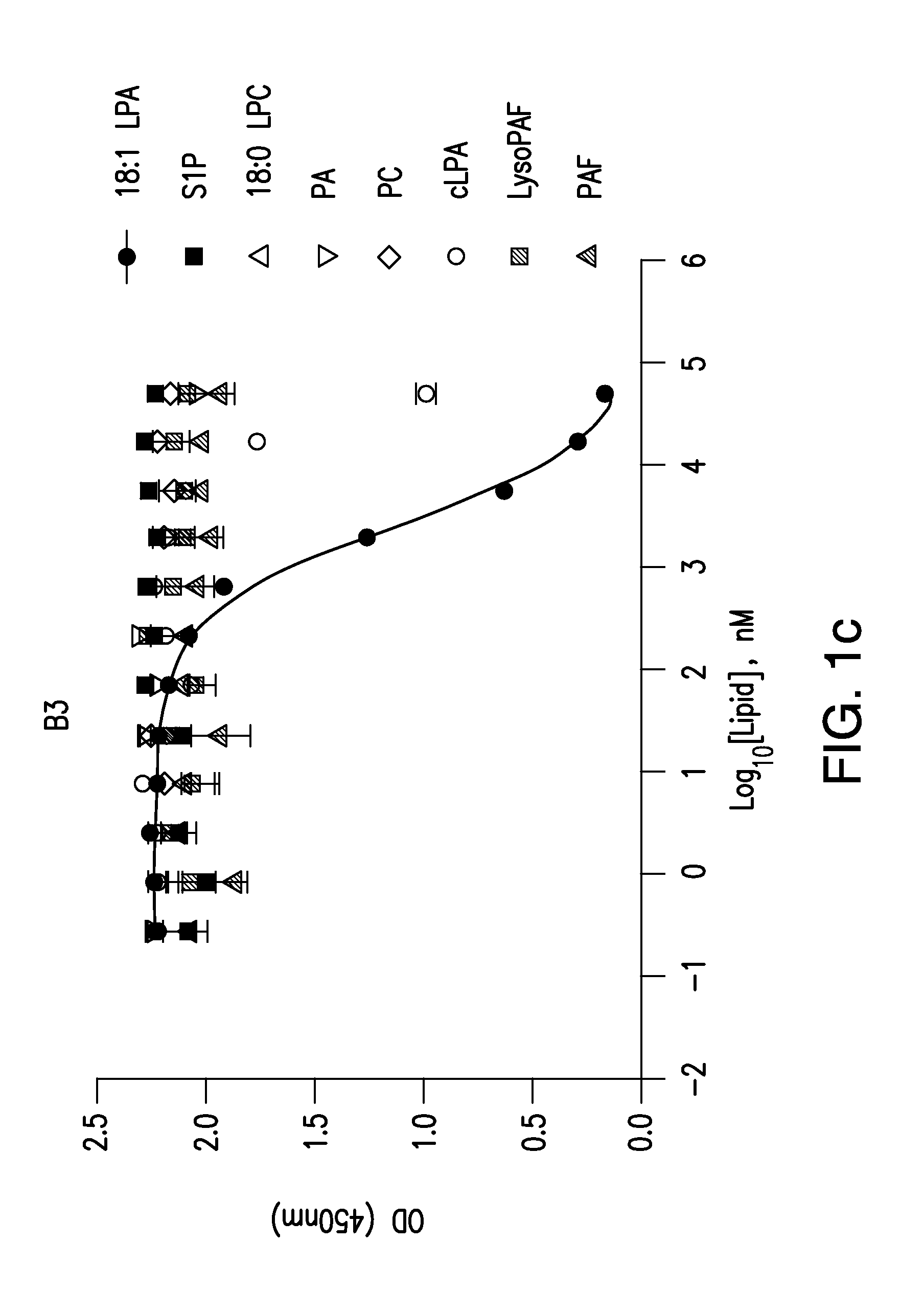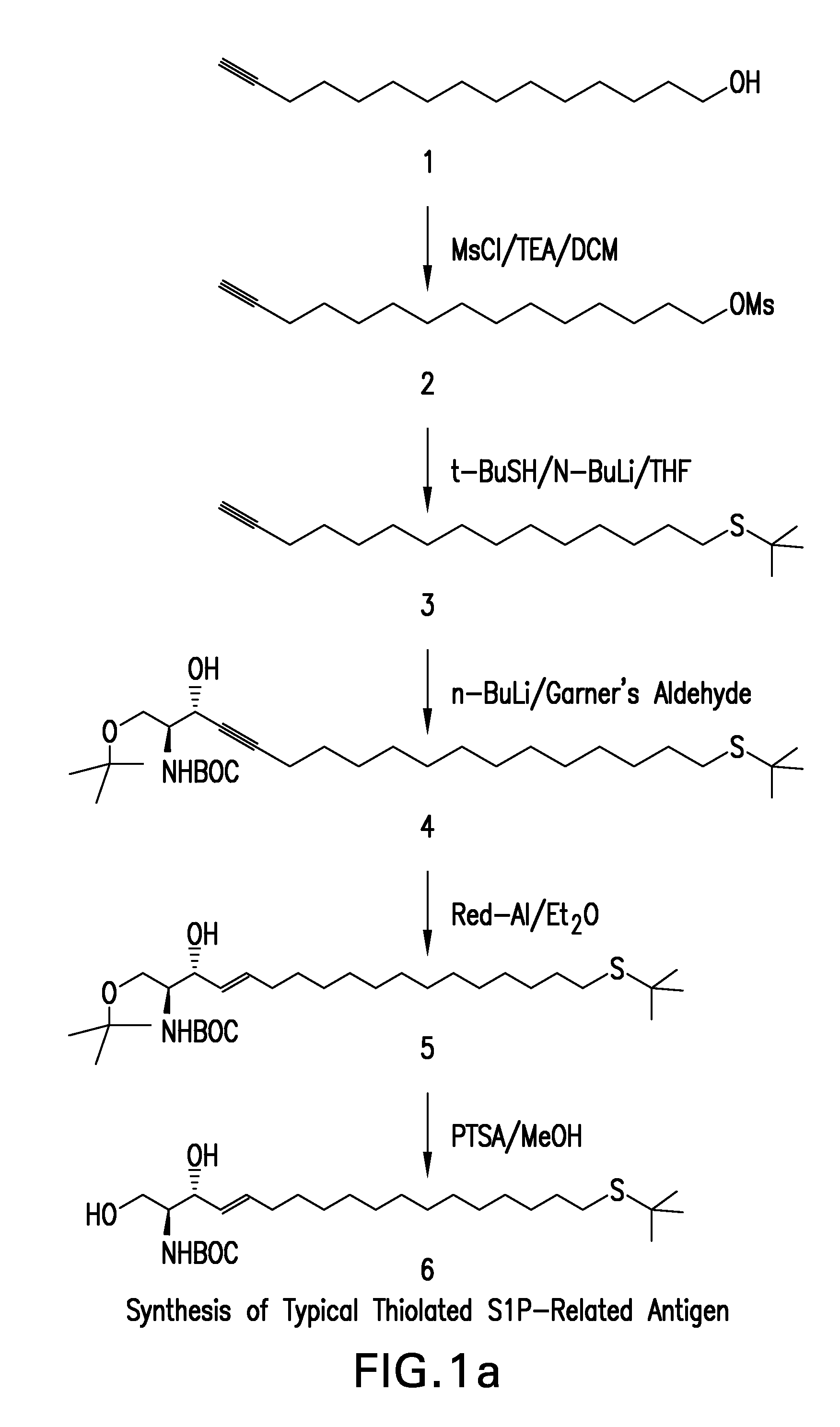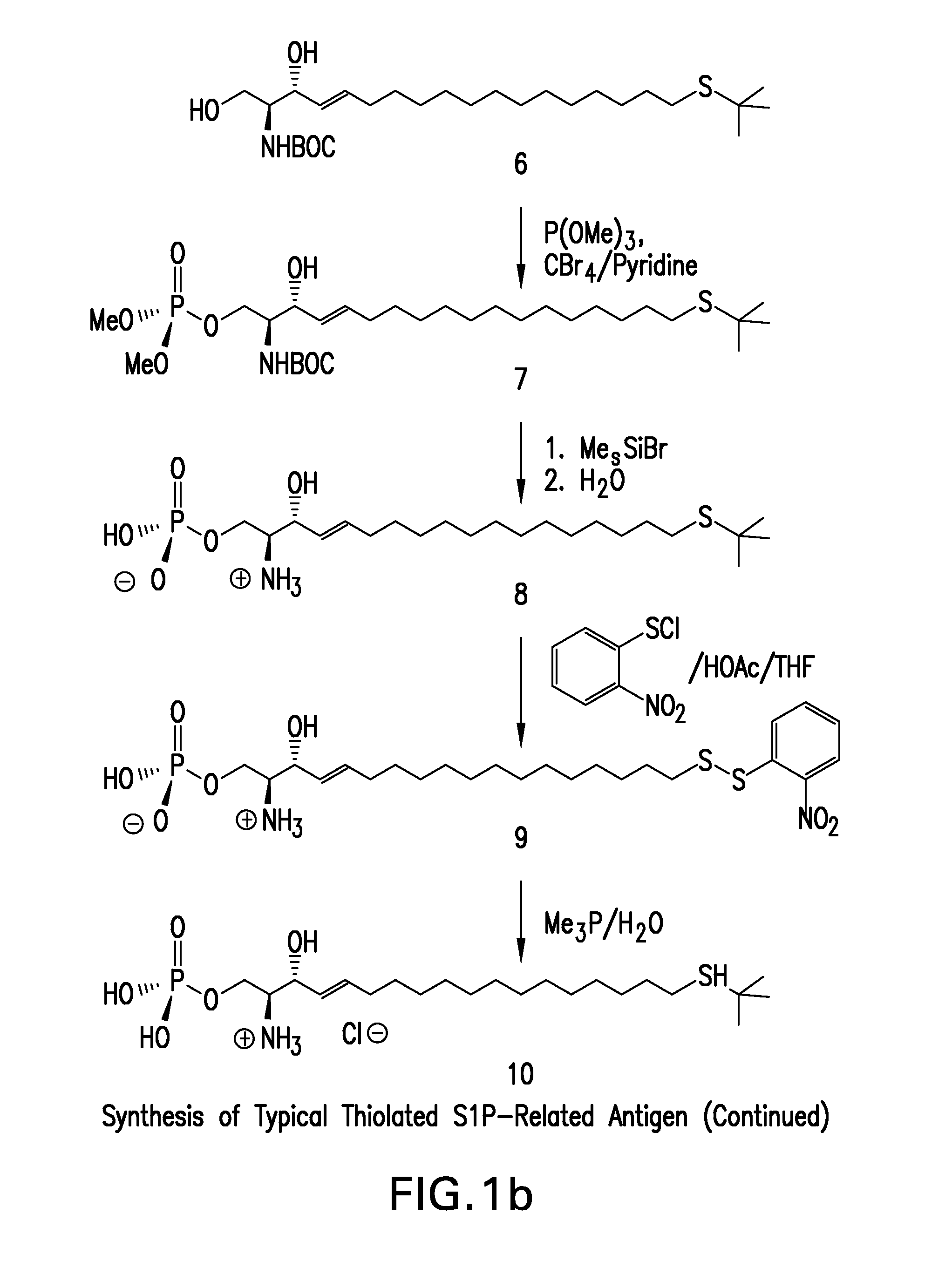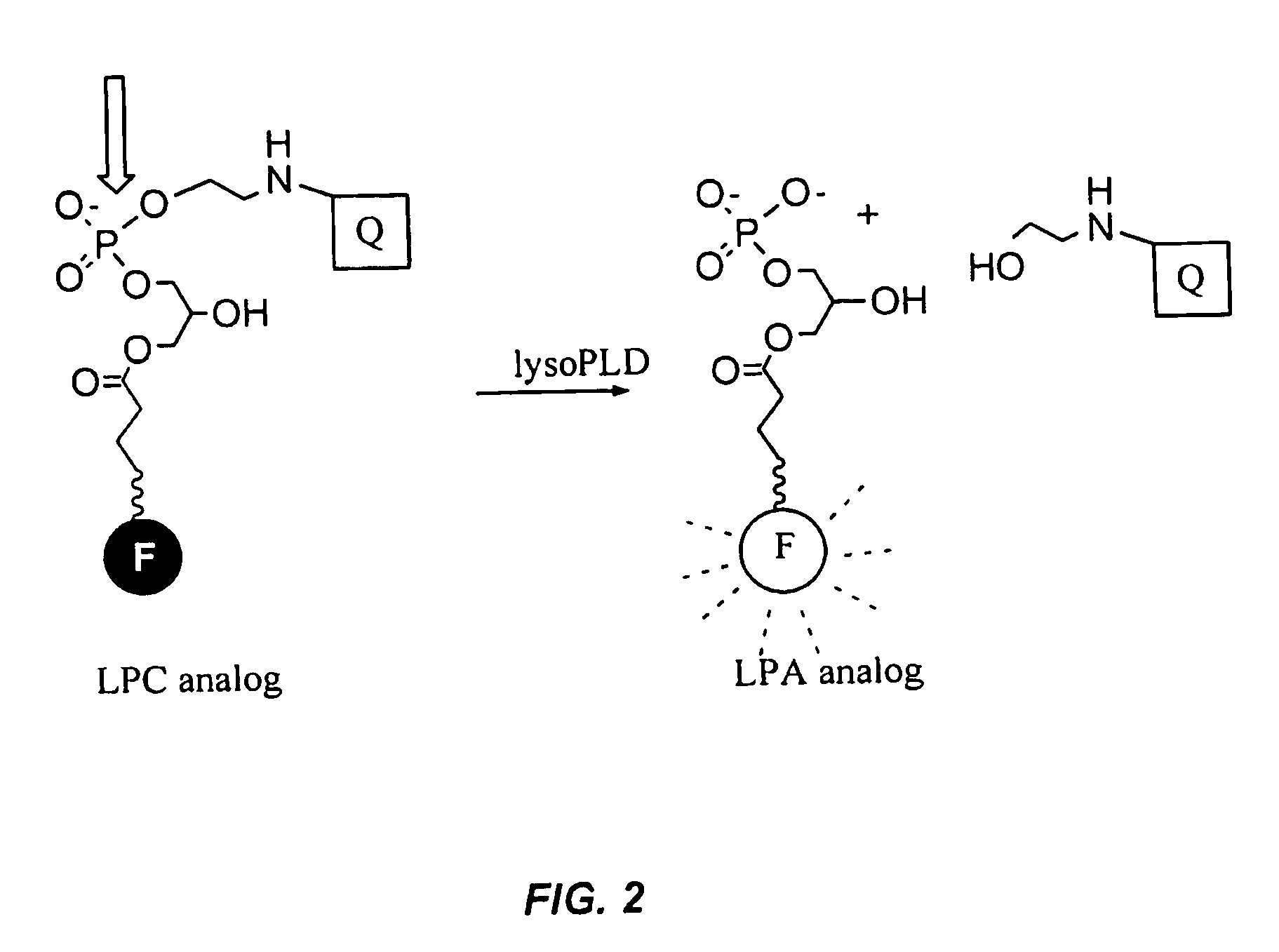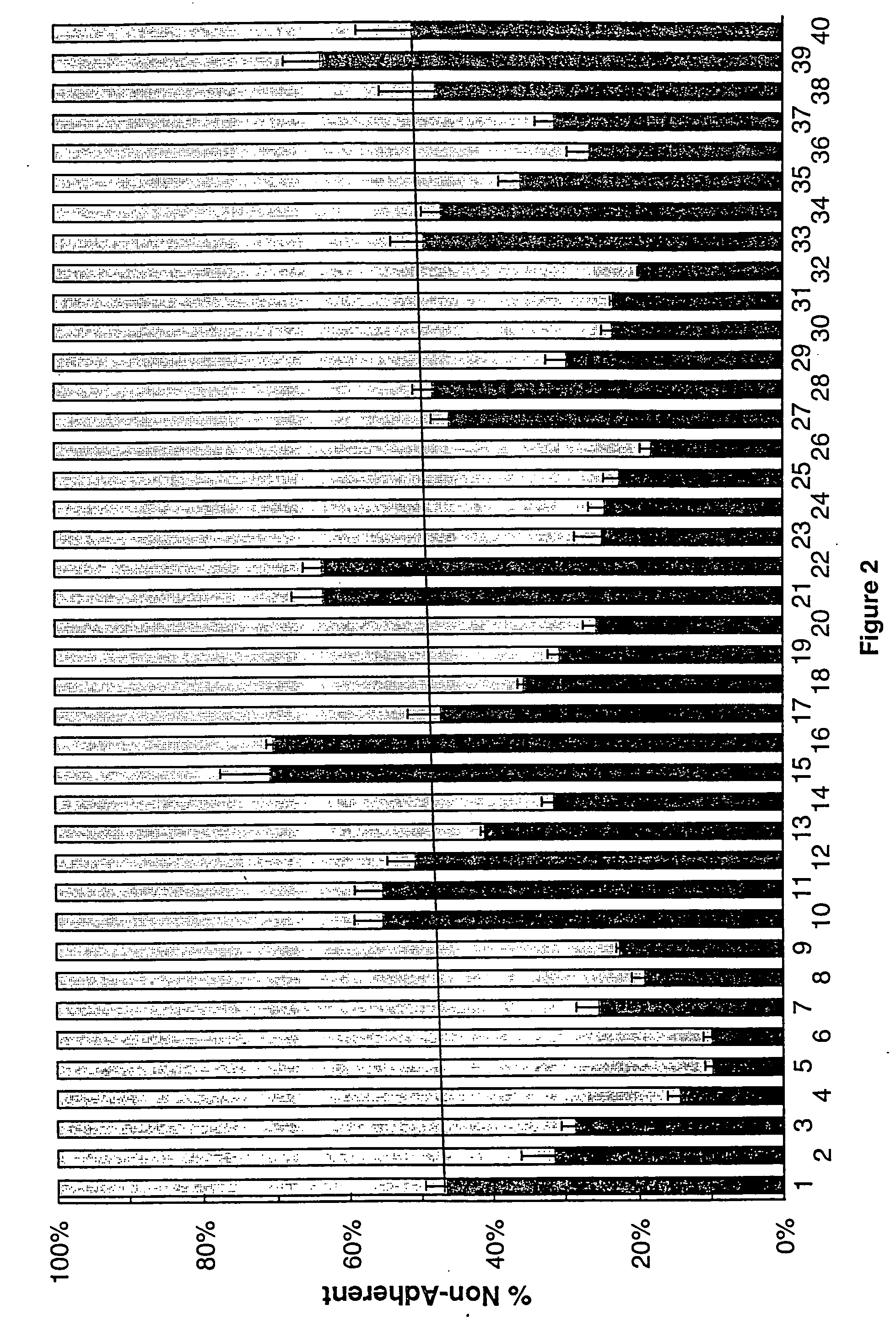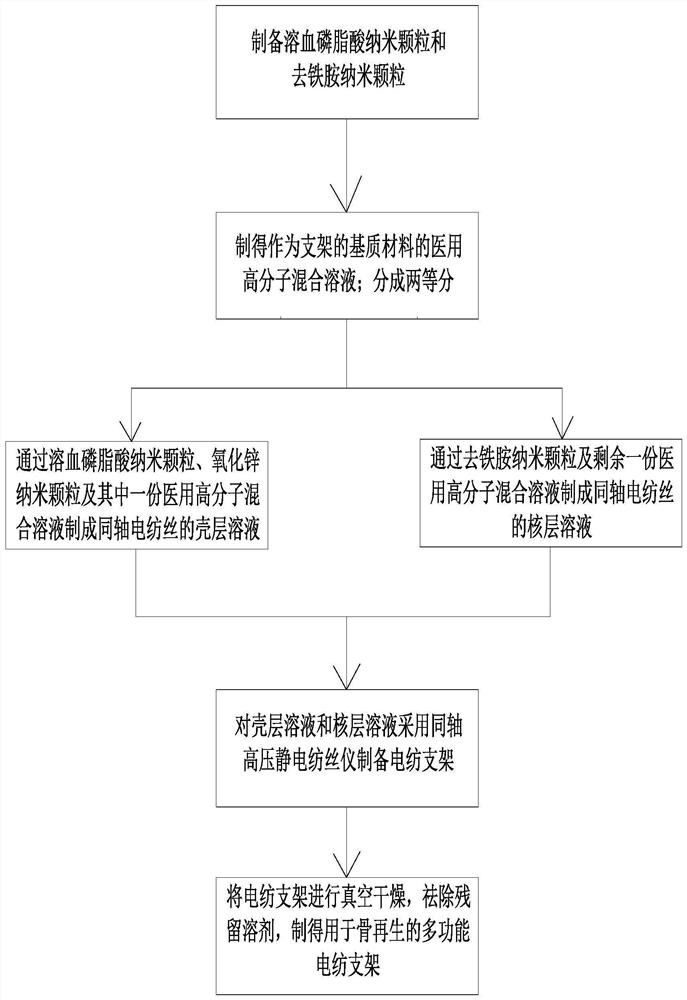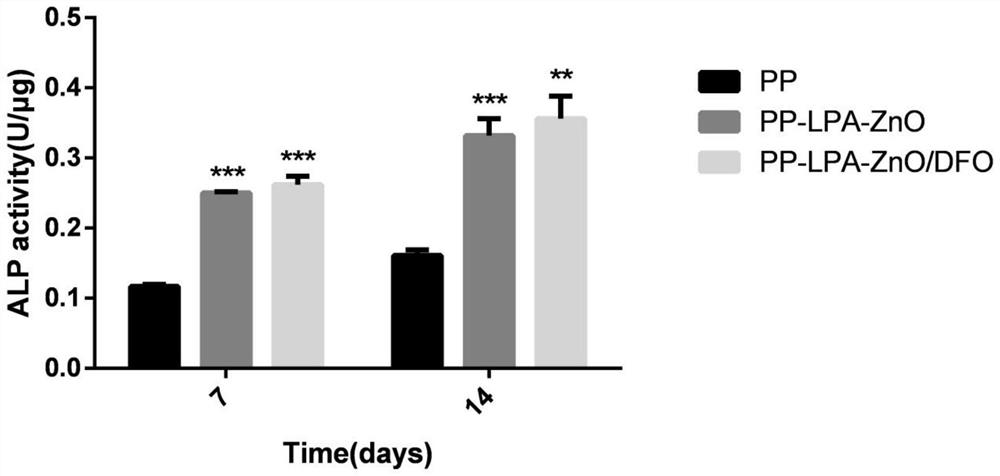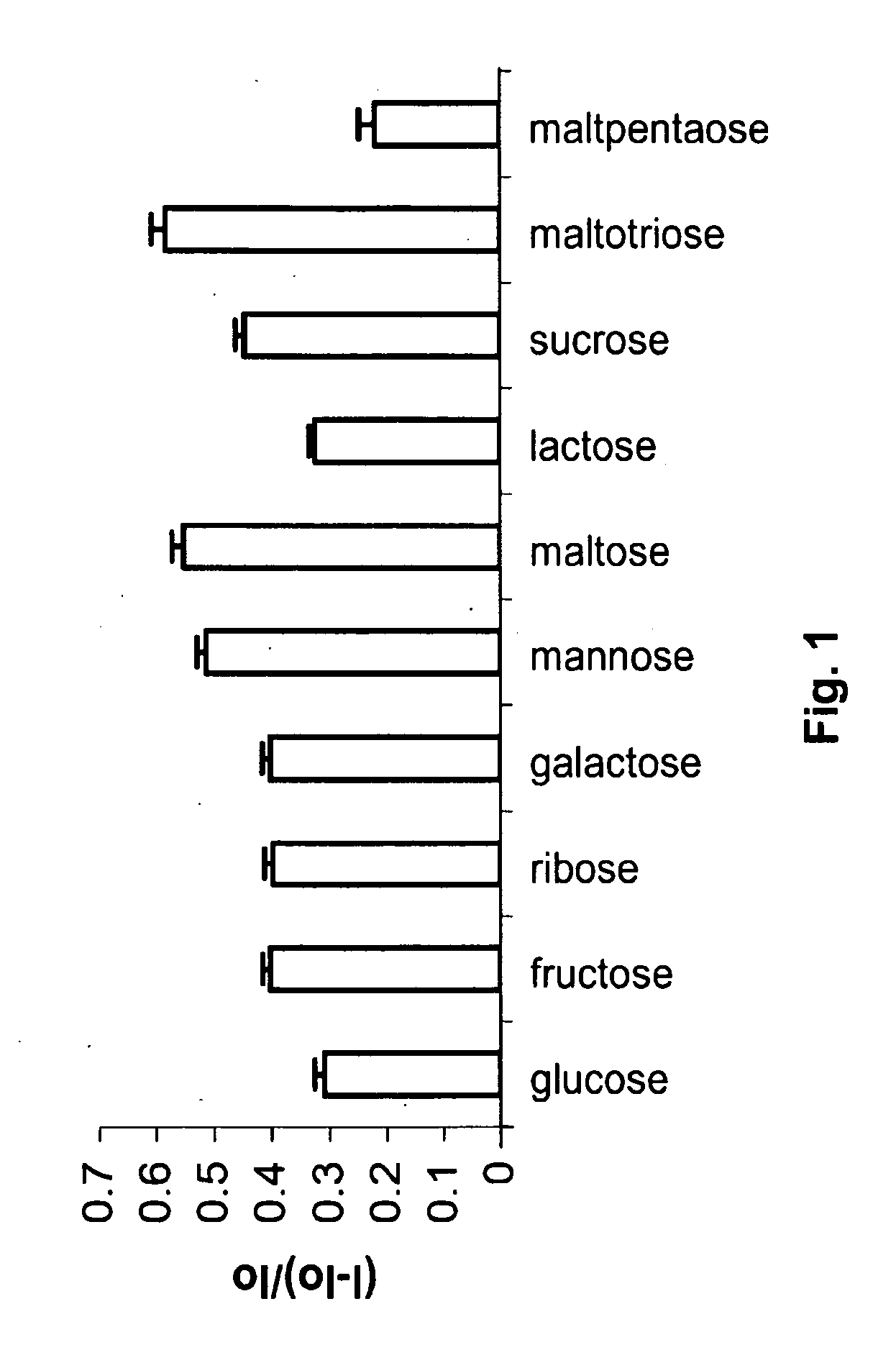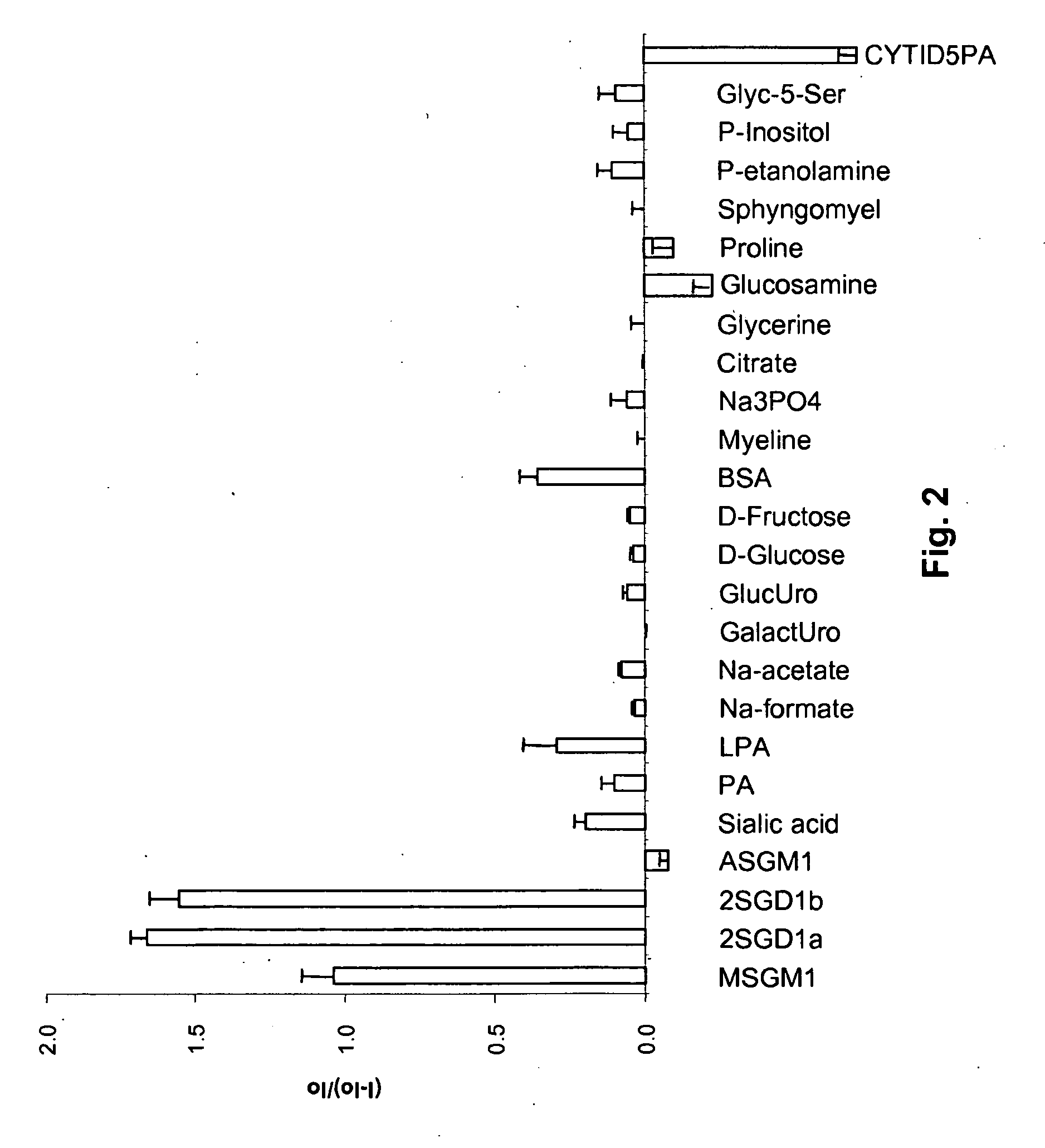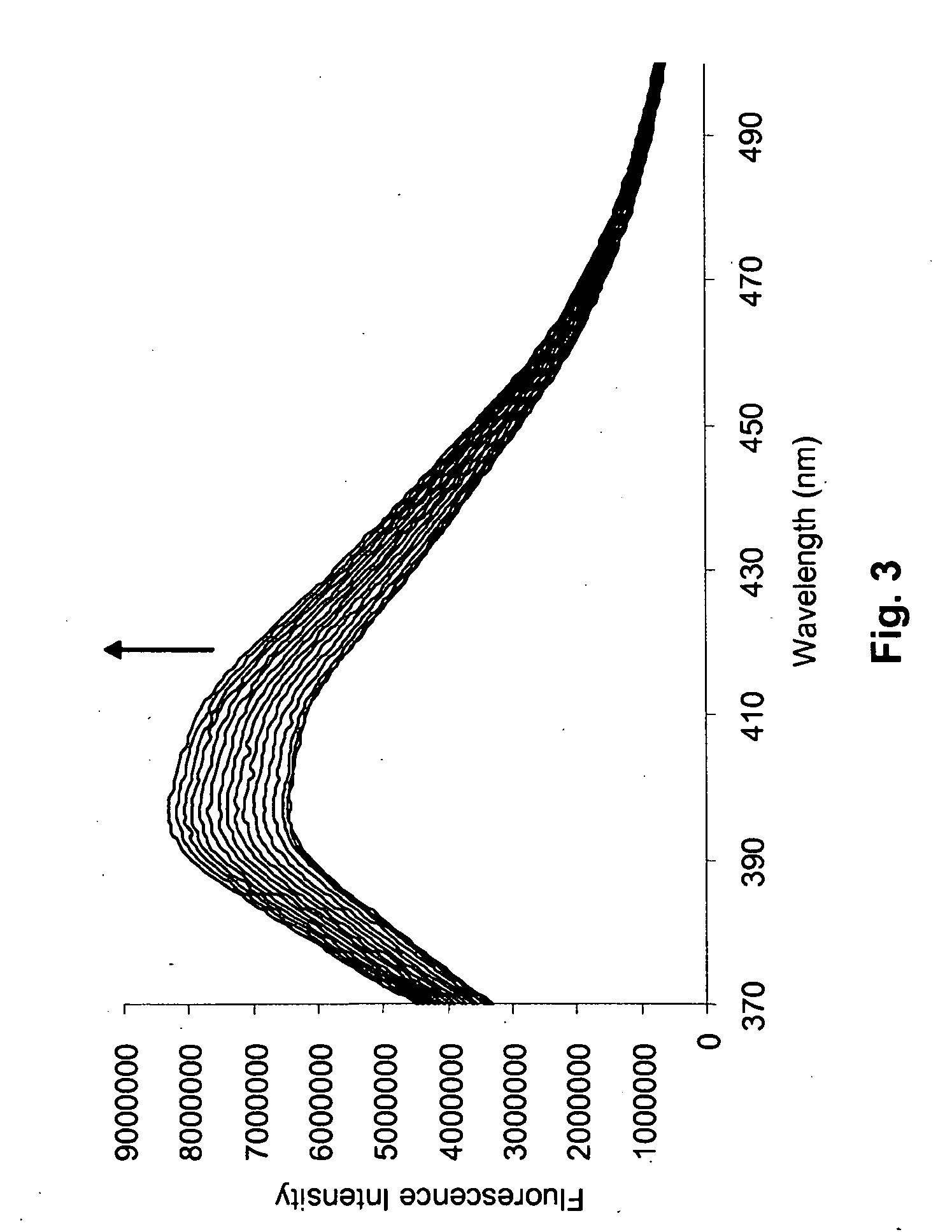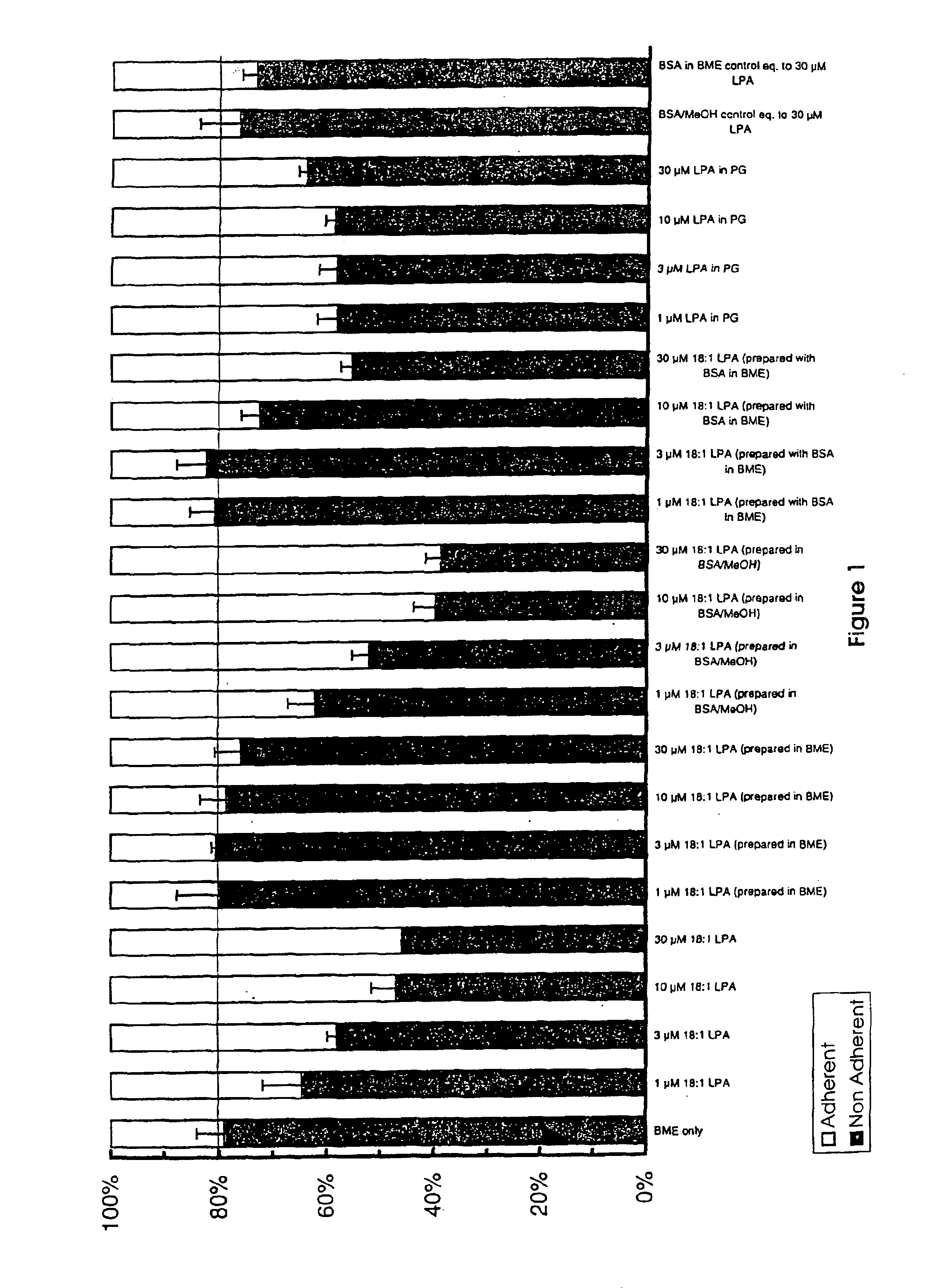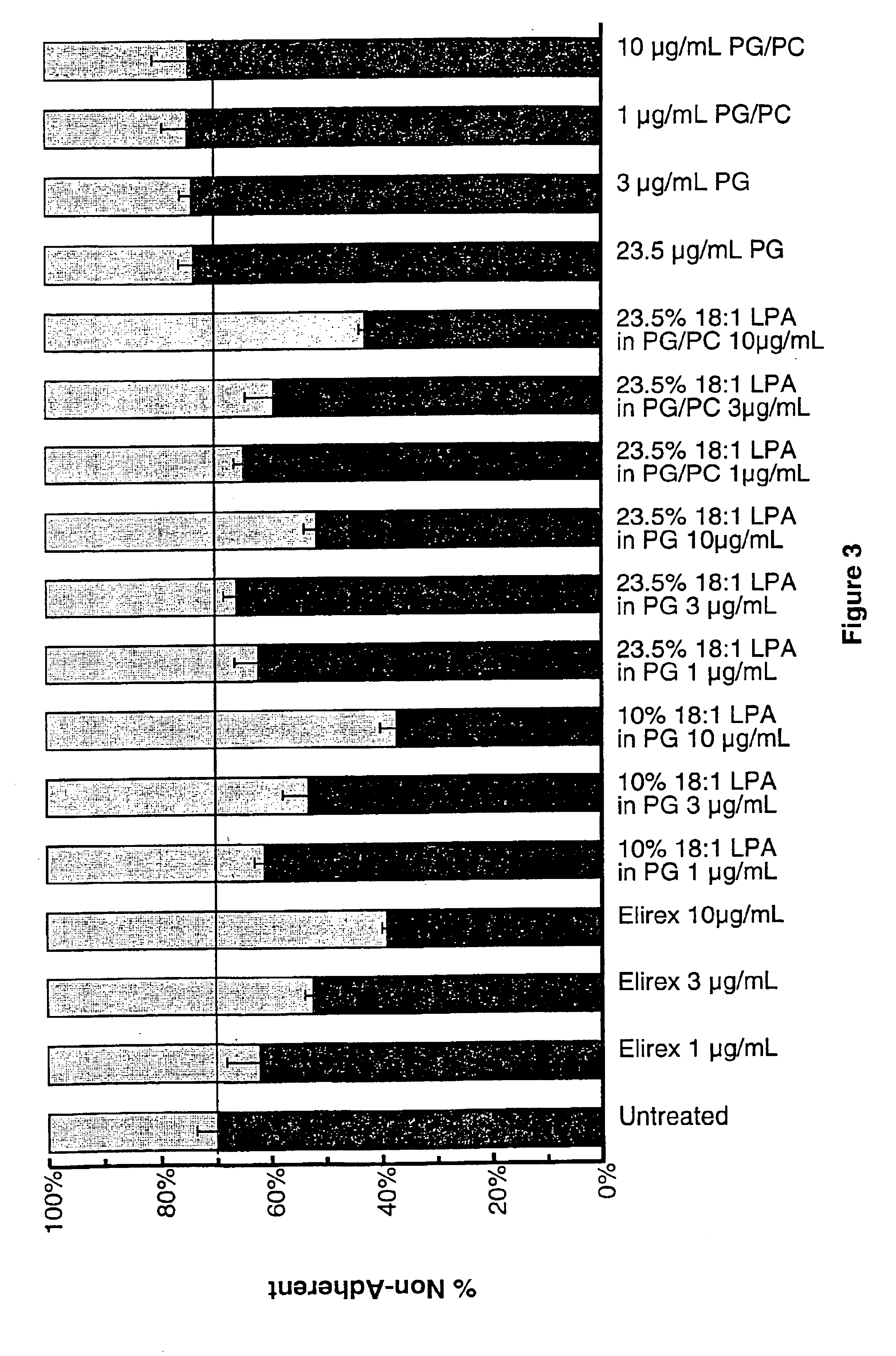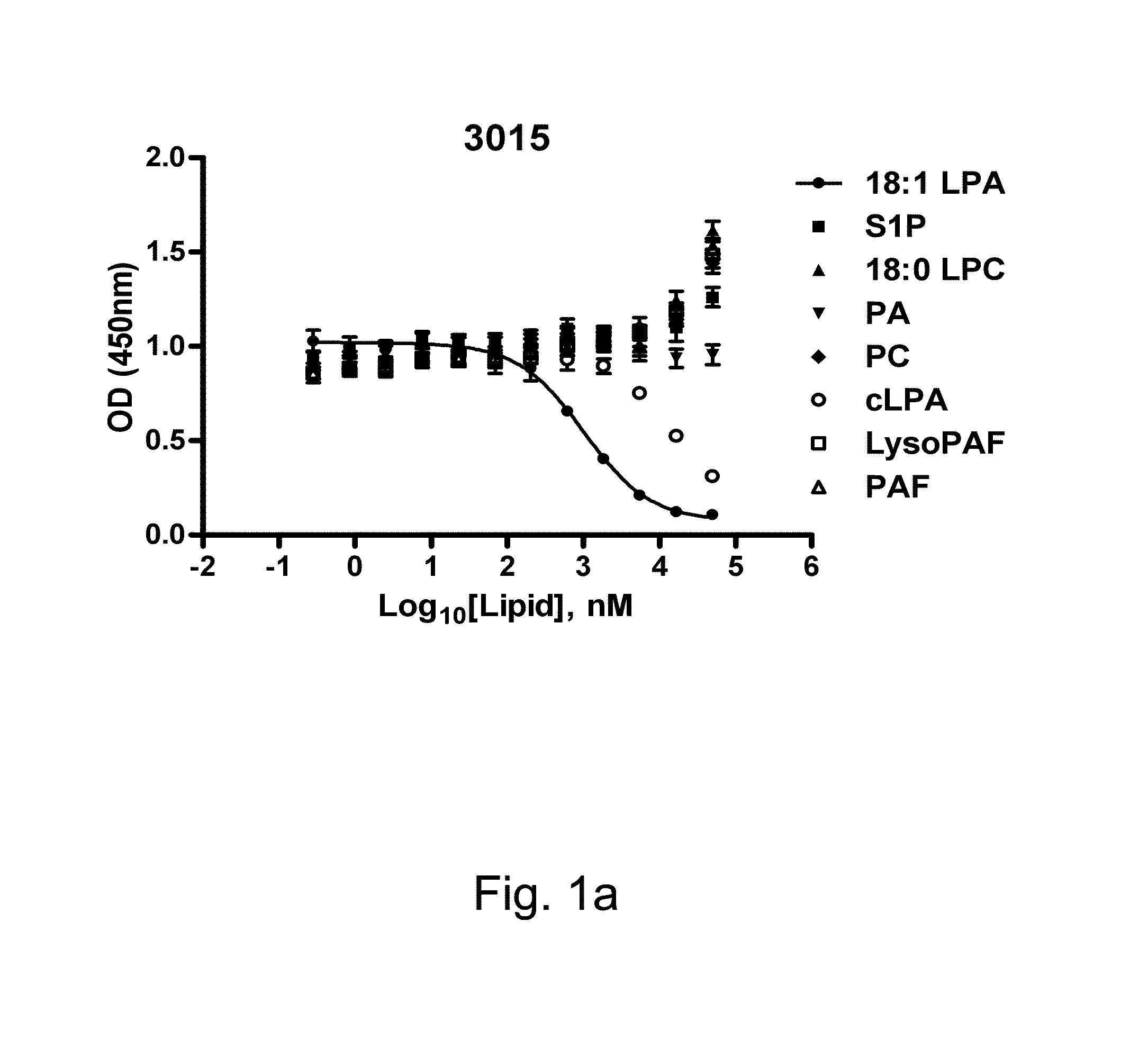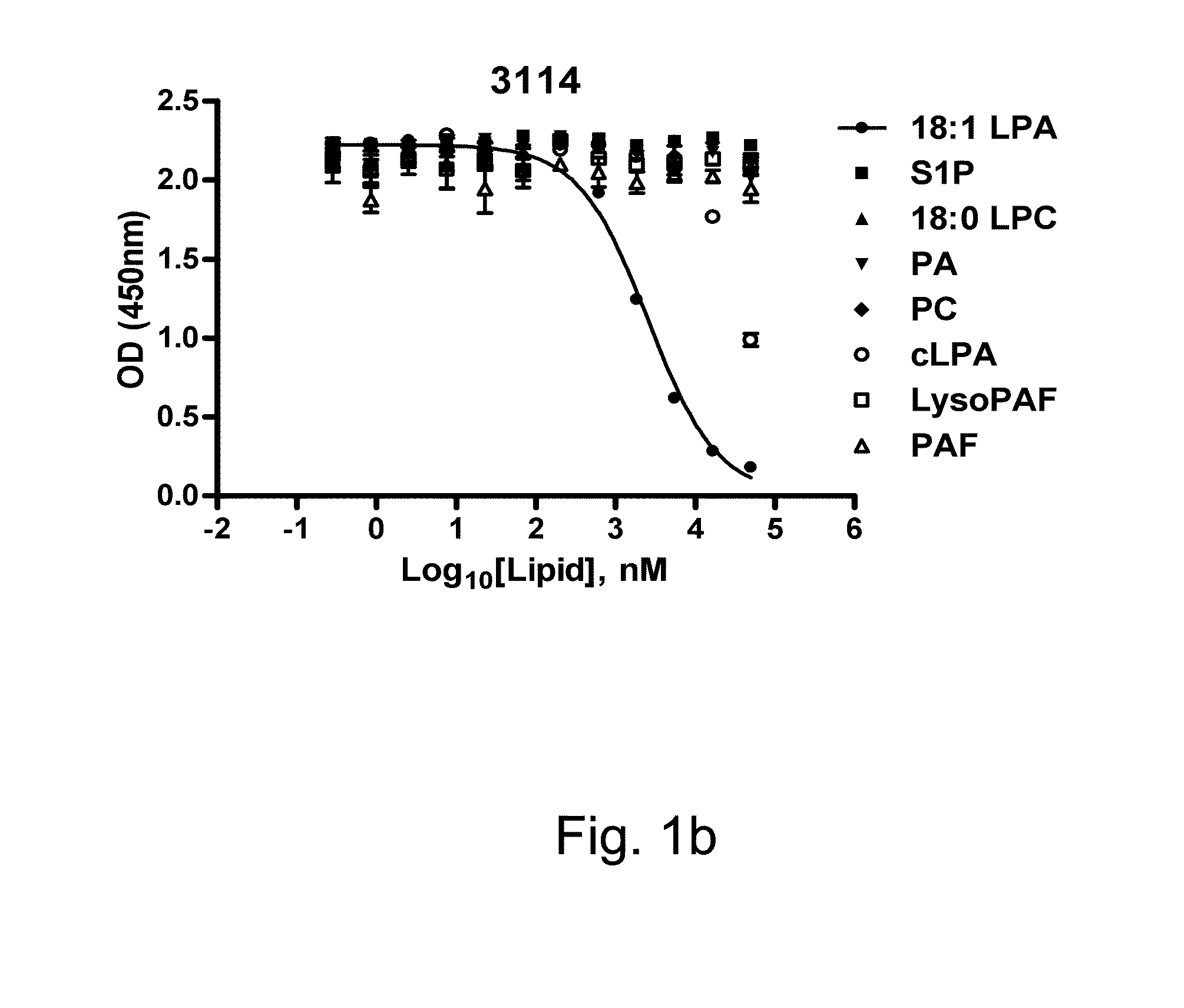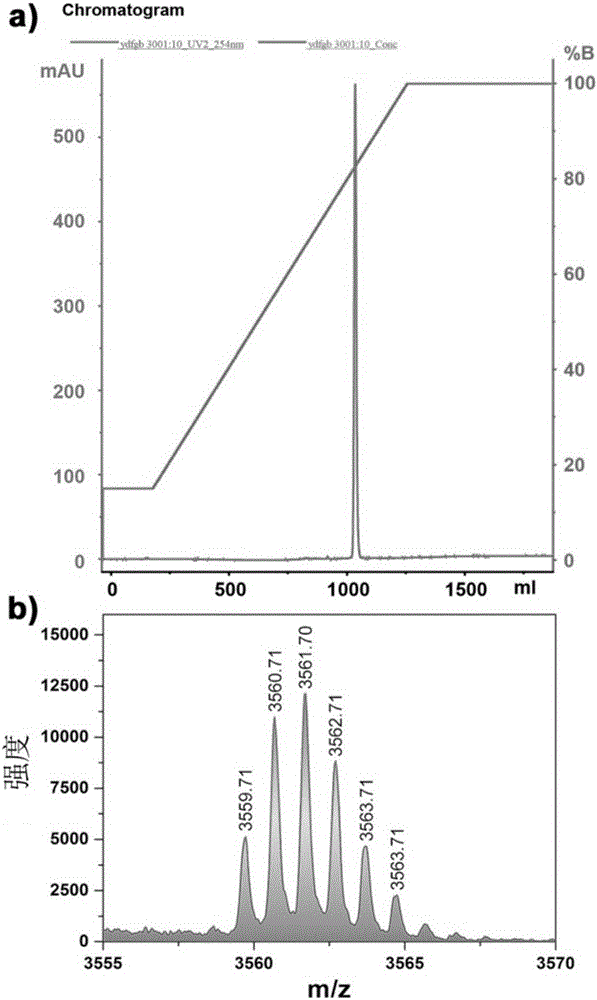Patents
Literature
Hiro is an intelligent assistant for R&D personnel, combined with Patent DNA, to facilitate innovative research.
81 results about "Lysophosphatidic acid" patented technology
Efficacy Topic
Property
Owner
Technical Advancement
Application Domain
Technology Topic
Technology Field Word
Patent Country/Region
Patent Type
Patent Status
Application Year
Inventor
Lysophosphatidic acid (LPA) is a phospholipid derivative that can act as a signaling molecule.
Novel Bioactive Lipid Derivatives, and Methods of Making and Using Same
InactiveUS20070281320A1Minimize the possibilityImmunoglobulins against animals/humansCulture processPolyethylene glycolCarrier protein
Compositions and methods for producing monoclonal antibodies and their derivatives reactive against bioactive lipid targets are described. These compositions include derivatized lipids, each of which comprises a bioactive lipid that having a polar head group and at least one hydrocarbon chain (e.g., a lysolipid such as lysophosphatidic acid or sphingosine-1-phosphate) in which a carbon atom has been derivatized with a pendant reactive group; immunogens made by linking a derivatized lipid to a carrier moiety (e.g., a carrier protein, polyethylene glycol, colloidal gold, alginate, or a silicone bead); monoclonal antibodies and derivatives produced by immunizing an animal with such an immunogen; and therapeutic and diagnostic compositions containing such antibodies and antibody derivatives. Methods for making such derivatized lipids, immunogens, and monoclonal antibodies and derivatives, methods for detecting such antibodies once generated, and therapeutic and diagnostic methods for using such antibodies and derivatives, are also described.
Owner:APOLLO ENDOSURGERY INC
Compositions and methods for the treatment and prevention of fibrotic, inflammatory and neovascularization conditions
The present invention relates to compositions and methods for prevention and treatment of diseases and conditions, including ocular diseases and conditions, characterized by aberrant fibrogenesis or scarring, inflammation and / or aberrant neovascularization or angiogenesis. The compositions and methods of the invention utilize immune-derived moieties that are specifically reactive against bioactive lipids and which are capable of decreasing the effective concentration of said bioactive lipid. In some embodiments, the immune-derived moiety is a monoclonal antibody that is reactive against sphingosine-1-phosphate (S1P) or lysophosphatidic acid (LPA).
Owner:LPATH
Compositions and methods for the treatment and prevention of fibrotic, inflammatory, and neovascularization conditions of the eye
InactiveUS20080213274A1Low effective concentrationHealing woundSenses disorderImmunoglobulins against animals/humansDiseaseAngiogenesis growth factor
The present invention relates to compositions and methods for prevention and treatment of ocular diseases and conditions characterized by aberrant fibrogenesis or scarring, inflammation and / or aberrant neovascularization or angiogenesis. The compositions and methods of the invention utilize immune-derived moieties that are specifically reactive against bioactive lipids and which are capable of decreasing the effective concentration of said bioactive lipid. In some embodiments, the immune-derived moiety is a monoclonal antibody that is reactive against sphingosine-1-phosphate (S1P) or lysophosphatidic acid (LPA).
Owner:LPATH
Compositions and methods for binding lysophosphatidic acid
ActiveUS20100034814A1Low effective concentrationSugar derivativesMicrobiological testing/measurementComplementarity determining regionVariable domain
Compositions and methods for making and using anti-LPA agents, for example, monoclonal antibodies, are described. Variable domain and complementarity determining region amino acid sequences of several monoclonal antibodies against LPA are disclosed, as is a consensus anti-LPA monoclonal antibody variable domain sequence.
Owner:APOLLO ENDOSURGERY INC
Enzyme method for detecting disease conditions by measuring lysophosphatidic acid
InactiveUS6255063B1Reduce background concentrationMicrobiological testing/measurementBiological material analysisAssayLysophosphatidic acid
The present invention is an enzymatic method and diagnostic kits for detecting and quantifying the presence of one or more lysophospholids in a sample of bodily fluid taken from a test subject. The method uses enzymes in a two step assay and may be used to detect disease conditions associated with altered levels of lysophospholipids and to correlate such conditions with altered levels of lysophospholipids.
Owner:APOLLO ENDOSURGERY INC
Small molecule inhibitors of autotaxin and methods of use
InactiveUS20110110886A1Inhibit and reduce and growthInhibit and reduce likelihoodHeavy metal active ingredientsBiocideDiseaseMetastatic melanoma
Autotaxin (ATX) is a prometastatic enzyme initially isolated from the conditioned media of human melanoma cells that stimulates a myriad of biological activities including angiogenesis and the promotion of cell growth, survival, and differentiation through the production of lysophosphatidic acid (LPA). ATX increases the aggressiveness and invasiveness of transformed cells, and ATX levels directly correlate with tumor stage and grade in several human malignancies. To study the role of ATX in the pathogenesis of malignant melanoma, we developed antibodies and small molecule inhibitors against recombinant human protein. Immunohistochemistry of paraffin embedded human tissue demonstrates that ATX levels are markedly increased in human primary and metastatic melanoma relative to benign nevi. Chemical screens identified several small molecule inhibitors with binding constants ranging from nanomolar to low micromolar. Cell migration and invasion assays with melanoma cell lines demonstrate that ATX markedly stimulates melanoma cell migration and invasion, an effect suppressed by ATX inhibitors. The migratory phenotype can be rescued by the addition of ATX's enzymatic product, LPA, confirming that the observed inhibition is linked to suppression of LPA production by ATX. Chemical analogues of the inhibitors demonstrate structure activity relationships important for ATX inhibition and indicate pathways for their optimization. These studies suggest that ATX is an approachable molecular target for the rational design of chemotherapeutic agents directed against human malignancies driven by the ATX / LPA axis, especially including malignant melanoma, among numerous others including breast and ovarian cancers.
Owner:YALE UNIV
Mechanism-based inactivators of autotaxin
InactiveUS8022239B2Reduce conversionReadily availableChemical treatment enzyme inactivationPhosphorus organic compoundsReactive siteCytotoxicity
A novel class of compounds to inactivate autotaxin enzymes is provided. Such compounds include mono- and di-fluoromethylphenyl C12-C18 phosphodiesters and exhibit reactivity with autotaxin to ultimately reduce the size of the reactive sites thereon to prevent conversion of lysophosphatidyl choline to lysophophatidic acid. Furthermore, such compounds are non-cytotoxic, and can be incorporated within delivery forms for human ingestion. As such, these compounds accord an excellent manner of potentially reducing generation of certain cancers attributable to the presence of naturally occurring autotaxin within the human body. Methods of producing such novel compounds are encompassed within this invention as well as methods of inactivating autotaxin to certain degrees therewith.
Owner:UNIVERSITY OF MEMPHIS RESEARCH FOUNDATION
Methods for decreasing immune response and treating immune conditions
InactiveUS20070280933A1Nervous disorderImmunoglobulins against animals/humansDiseaseAutoimmune disease
The present invention relates to compositions and methods for decreasing an immune response in an animal comprising administering to said animal an agent that binds a bioactive lipid and reduces the effective concentration of said bioactive lipid. Also provided are methods for treating diseases or conditions, including autoimmune disorders, which are characterized by an aberrant, excessive or undesired immune response. The methods of the invention utilize agents that bind bioactive lipids and are capable of decreasing the effective concentration of the bioactive lipid. In some embodiments, the agent is a monoclonal antibody that is reactive against sphingosine-1-phosphate (S1P) or lysophosphatidic acid (LPA).
Owner:APOLLO ENDOSURGERY INC
Plant lysophosphatidic acid acyltransferases
This invention relates to plant LPAATs, means to identify such proteins, amino acid and nucleic acid sequences associated with such protein, and methods to obtain, make and / or use such plant LPAATs. Purification, especially the removal of plant membranes and the substantial separation away from other plant proteins, and use of the plant LPAAT is provided, including the use of the protein as a tool in gene isolation for biotechnological applications. In addition, nucleic acid sequences encoding LPAAT protein regions are provided, and uses of such sequences for isolation of LPAAT genes from plants are considered.
Owner:MONSANTO CO (MONSANTO CY)
Immune-Derived Moieties Reactive Against Lysophosphatidic Acid
InactiveUS20080145360A1Minimize the possibilityImmunoglobulins against cell receptors/antigens/surface-determinantsAntibody ingredientsLipid formationPolyethylene glycol
Compositions and methods for producing monoclonal antibodies and their derivatives reactive against bioactive lipid targets are described. These compositions include derivatized lipids, each of which comprises a bioactive lipid that having a polar head group and at least one hydrocarbon chain (e.g., a lysolipid such as lysophosphatidic acid or sphingosine-1-phosphate) in which a carbon atom has been derivatized with a pendant reactive group; immunogens made by linking a derivatized lipid to a carrier moiety (e.g., a carrier protein, polyethylene glycol, colloidal gold, alginate, or a silicone bead); monoclonal antibodies and derivatives produced by immunizing an animal with such an immunogen; and therapeutic and diagnostic compositions containing such antibodies and antibody derivatives. Methods for making such derivatized lipids, immunogens, and monoclonal antibodies and derivatives, methods for detecting such antibodies once generated, and therapeutic and diagnostic methods for using such antibodies and derivatives, are also described.
Owner:APOLLO ENDOSURGERY INC
Methods for decreasing immune response and treating immune conditions
InactiveUS20090074720A1Nervous disorderPeptide/protein ingredientsMonoclonal antibodyAutoimmune disease
Owner:SABBADINI ROGER A
Lysophospholipids as biomarkers of ovarian cancer
InactiveUS7964408B1Improve survivalIncreased mortalityMicrobiological testing/measurementMass spectrometric analysisPhosphateSubspecies
A method of using a bioactive lysophospholipid (LL) as a biomarker for detecting the presence and recurrence of ovarian cancer. Subspecies of LL, such as lysophosphatidic acid (LPA), lysophosphatidylinositol (LPI), lysophosphatidylcholine (LPC), and lysosphingolipid sphinsosine-1-phosphate (S1P), are used alone or in conjunction to increase the specificity and sensitivity of the assay.
Owner:UNIV OF SOUTH FLORIDA
Compositions and Methods for Binding Lysophosphatidic Acid
InactiveUS20090136483A1Low effective concentrationSenses disorderAntipyreticMonoclonal antibodyLysophosphatidic acid
Compositions and methods for making and using anti-LPA agents, for example, monoclonal antibodies, are described.
Owner:APOLLO ENDOSURGERY INC
Compositions and methods for binding lysophosphatidic acid
Owner:APOLLO ENDOSURGERY INC
Methods and Reagents for Detecting Bioactive Lipids
InactiveUS20080090303A1Minimize the possibilityImmunoglobulins against cell receptors/antigens/surface-determinantsAntibody ingredientsLipid formationPolyethylene glycol
Compositions and methods for producing monoclonal antibodies and their derivatives reactive against bioactive lipid targets are described. These compositions include derivatized lipids, each of which comprises a bioactive lipid that having a polar head group and at least one hydrocarbon chain (e.g., a lysolipid such as lysophosphatidic acid or sphingosine-1-phosphate) in which a carbon atom has been derivatized with a pendant reactive group; immunogens made by linking a derivatized lipid to a carrier moiety (e.g., a carrier protein, polyethylene glycol, colloidal gold, alginate, or a silicone bead); monoclonal antibodies and derivatives produced by immunizing an animal with such an immunogen; and therapeutic and diagnostic compositions containing such antibodies and antibody derivatives. Methods for making such derivatized lipids, immunogens, and monoclonal antibodies and derivatives, methods for detecting such antibodies once generated, and therapeutic and diagnostic methods for using such antibodies and derivatives, are also described.
Owner:APOLLO ENDOSURGERY INC
Humanized antibody compositions and methods for binding lysophosphatidic acid
Compositions and methods for making and using humanized anti-LPA monoclonal antibodies, and fragments and derivatives thereof, are described.
Owner:APOLLO ENDOSURGERY INC
Humanized antibody compositions and methods for binding lysophosphatidic acid
Compositions and methods for making and using humanized anti-LPA monoclonal antibodies, and fragments and derivatives thereof, are described.
Owner:APOLLO ENDOSURGERY INC
Application of lysophosphatidic acid serving as marker in detecting endometriosis
InactiveCN106872593AHigh sensitivityImprove featuresComponent separationBlood plasmaLysophosphatidic acid
The invention discloses application of lysophosphatidic acid serving as a biological marker in preparing a diagnostic reagent or a detection object for detecting endometriosis. Meanwhile, the invention further provides a biological marker for detecting endometriosis. The biological marker is prepared from the following six kinds of lysophosphatidic acid of 18:2 LPA, 16:0 LPA, 20:4 LPA, 18:1 LPA, 22:6 LPA and 18:0 LPA. According to the application of the lysophosphatidic acid disclosed by the invention, an ultra-high performance liquid chromatography-tandem mass spectrum method is utilized to measure levels of the six kinds of LPA in plasma of an endometriosis patient and a normal collator, and results show that the concentration levels of the six kinds of LPA in the plasma of the endometriosis patient are obviously higher than that of the normal collator. Therefore, the six kinds of LPA can serve as the biological marker of the endometriosis to be used, and sensitivity and specificity of the six kinds of LPA serving as a combined diagnosis marker can reach 92% and 86% and are both obviously higher than an existing hematological biological marker for endometriosis.
Owner:江西省妇幼保健院
Prevention and treatment of pain using antibodies to lysophosphatidic acid
InactiveUS20110064744A1Nervous disorderMicrobiological testing/measurementAntibody fragmentsLysophosphatidic acid
Owner:APOLLO ENDOSURGERY INC
Prevention and treatment of pain using antibodies to lysophosphatidic acid
InactiveUS20120014944A1Relieve painDecreased pain vocalizationNervous disorderAntipyreticAntibody fragmentsMonoclonal antibody
Methods for preventing or treating pain are provided. Such methods comprise administering to a subject (e.g., a human subject) an antibody or antibody fragment that binds LPA. The antibody may be a humanized monoclonal antibody.
Owner:APOLLO ENDOSURGERY INC
Immune-Derived Moieties Reactive Against Bioactive Lipids, and Methods of Making and Using Same
InactiveUS20080138334A1Minimize the possibilityImmunoglobulins against cell receptors/antigens/surface-determinantsAntibody ingredientsLipid formationPolyethylene glycol
Compositions and methods for producing monoclonal antibodies and their derivatives reactive against bioactive lipid targets are described. These compositions include derivatized lipids, each of which comprises a bioactive lipid that having a polar head group and at least one hydrocarbon chain (e.g., a lysolipid such as lysophosphatidic acid or sphingosine-1-phosphate) in which a carbon atom has been derivatized with a pendant reactive group; immunogens made by linking a derivatized lipid to a carrier moiety (e.g., a carrier protein, polyethylene glycol, colloidal gold, alginate, or a silicone bead); monoclonal antibodies and derivatives produced by immunizing an animal with such an immunogen; and therapeutic and diagnostic compositions containing such antibodies and antibody derivatives. Methods for making such derivatized lipids, immunogens, and monoclonal antibodies and derivatives, methods for detecting such antibodies once generated, and therapeutic and diagnostic methods for using such antibodies and derivatives, are also described.
Owner:SABBADINI ROGER A +2
Compounds and methods of use thereof for assaying lysophospholipase D activity
ActiveUS7459285B2HydrolasesMicrobiological testing/measurementLysophospholipase D activityLysophosphatidic acid
Fluorogenic lysophosphatidic acid derivatives which can be used as substrates in a continuous, fluorogenic assay that can be performed in microtiter plates. The assays permit measuring LysoPLD activity levels in normal events such as pregnancy or disease states such as cancer. In addition, the present invention can be adopted to high throughout screening(HTS) for identification of potential inhibitors of lysoPLD activity.
Owner:ECHELON BIOSCI
Compositions containing lysophosphotidic acids which inhibit apoptosis and uses thereof
InactiveUS20060063738A1Reduce decreaseOrganic active ingredientsBiocideApoptosisLysophosphatidic acid
Owner:SKY HIGH
Preparation method of multifunctional electrospinning scaffold for bone regeneration
ActiveCN113842504AEfficient removalRegenerationBone implantConjugated cellulose/protein artificial filamentsLysophosphatidic acidPhosphatidic acid
The invention provides a preparation method of a multifunctional electrospinning scaffold for bone regeneration. The method belongs to the field of tissue engineering and regenerative medicine, and comprises the following specific steps: 1, preparing lysophosphatidic acid nanoparticles and deferoxamine nanoparticles; 2, preparing a medical polymer mixed solution and dividing the medical polymer mixed solution into two equal parts; 3, preparing a coaxial electrospinning shell layer solution from the lysophosphatidic acid nanoparticles, zinc oxide nanoparticles and the medical polymer mixed solution; 4, preparing a coaxial electrospinning core layer solution from the deferoxamine nanoparticles and another medical polymer mixed solution; 5, preparing the electrospinning scaffold with a core-shell structure; and 6, performing vacuum drying until a solvent is removed, thereby finally obtaining the product. According to the prepared multifunctional electrospinning scaffold for bone regeneration, the lysophosphatidic acid nanoparticles and the zinc oxide nanoparticles are arranged on the shell layer, the deferoxamine nanoparticles are arranged on the core layer, and the electrospinning scaffold has the functions of resisting bacteria, promoting osteogenesis, promoting revascularization and the like at the same time and can be used for repairing bone tissues in a complex microenvironment.
Owner:THE SECOND HOSPITAL AFFILIATED TO SUZHOU UNIV
Composition for promoting coloring and sweetening of grapes
ActiveCN106614741AGreat tasteColoring condition improvedBiocidePlant growth regulatorsLysophosphatidyl ethanolamineMonopotassium phosphate
The invention discloses a composition for promoting coloring and sweetening of grapes. The composition comprises a component A (natural abscisic acid), a component B (monopotassium phosphate), a component C (one of lysophosphatidyl ethanolamine, lysophosphatidic acid and lysophosphatidyl choline) and a component D (one of sodium benzoate, levulinic acid and glutamic acid). A weight ratio of the component A to the component B to the component C to the component D is 1:6-30:0.04-2:1; the component A, the component B, the component C and the component D which are completely dissolved in absolute ethyl alcohol are mixed with distribution agents and water to obtain solution, and each liter of solution comprises 5-25 grams of component A, 30-150 grams of component B, 1-10 grams of component C, 5-25 grams of component D and 5 mL of distribution agents. The composition has the advantages that coloring of fruits can be obviously shifted to an earlier time after the composition is applied to the grapes, and the fruits are good in coloring uniformity; the sugar degree of the fruits can be upgraded, the sugar-acid ratios can be increased, and accordingly the quality can be improved; deterioration of the hardness of the fruits can be prevented after the composition is used, and accordingly the storage and transport quality of the grapes can be improved; the composition is safe and efficient in use.
Owner:LUDONG UNIVERSITY
Lanthanide Complexes as Fluorescent Indicators for Neutral Sugars and Cancer Diagnosis
InactiveUS20100291689A1Enhanced fluorescence emissionSmaller ionic radiusIsocyanic acid derivatives preparationOrganic compound preparationFluorescenceCancers diagnosis
A group of water-soluble salophene-lanthanide complexes and other salophene-metal complexes are useful for purposes including: (i) detecting neutral carbohydrates at physiologically-relevant pH, (ii) the selective detection of gangliosides, and (iii) the selective detection of lysophosphatidic acid (LPA) in the presence of phosphatidic acid. The selective detection of LPA is useful in diagnosing ovarian and other cancers.
Owner:BOARD OF SUPERVISORS OF LOUISIANA STATE UNIV & AGRI & MECHANICAL COLLEGE +1
Compositions containing lysophosphotidic acids which inhibit apoptosis and uses thereof
InactiveUS6949529B2Reduce decreaseBiocideHydroxy compound active ingredientsApoptosisLysophosphatidic acid
Owner:TOYOTA JIDOSHA KK
Composition capable of inducing stem cells to secret cytokines and application thereof
ActiveCN109852654AReduce the amount of solutionAvoid social and ethical controversiesSkeletal/connective tissue cellsFermentationLysophosphatidic acidCytokine
The invention relates to a composition capable of inducing stem cells to secret cytokines and application thereof. The composition capable of inducing the stem cells to secret cytokines comprises thefollowing ingredients: 1-5 milligrams of vitamin A, 50-100 milligrams of glutamine, 0.5-2 milligrams of lysophosphatidic acid, and 0.01-0.1 milligram of icaritin. An induction medium can be formed byadding the composition into high-glucose-content DMEM; and the formed induction medium can be used for stimulating umbilical cord mesenchymal stem cells to secret cytokines. Particularly, being used in cooperation with appropriate mechanical-traction physical stimulation during induced culture processes, the induction medium is capable of further increasing amount of cytokines secreted by the umbilical cord mesenchymal stem cells. In addition, the composition avoids social ethical controversy by adopting the umbilical cord mesenchymal stem cells; moreover, the umbilical cord mesenchymal stem cells are relatively rapid in proliferation rate and low in immune rejection rate.
Owner:GUANGZHOU RAINHOME PHARM&TECH CO LTD
Prevention and treatment of pain using monoclonal antibodies and antibody fragments to lysophosphatidic acid
InactiveUS20120014946A1Relieve painDecreased pain vocalizationNervous disorderAntipyreticAntigenAntibody fragments
Methods for preventing and treating pain are provided. These methods involve administering to a subject, including a human subject, an antibody or antibody fragment that binds LPA. Preferably, antibody is a humanized anti-LPA monoclonal antibody, or an antigen-binding fragment derived from such an antibody.
Owner:APOLLO ENDOSURGERY INC
Polypeptide probe for specific identification of lysophosphatidic acid, preparation and applications thereof
InactiveCN106518965AStrong specificityHigh sensitivityPeptidesFluorescence/phosphorescenceFluorescenceLysophosphatidic acid
The present invention provides an early-stage ovarian cancer serum marker lysophosphatidic acid (LPA), a polypeptide probe for specific recognition of the LPA, and preparation and applications of the polypeptide probe, wherein the polypeptide probe is formed by linking a polypeptide Peptide, a linking group linker, and a fluorescent group Dye through amide bonds. According to the present invention, the polypeptide probe can accurately detect the presence of the LPA in the clinical serum sample at the early stage of ovarian cancer, and the polypeptide probe can be combined with an near infrared imager to image so as to be used for the early diagnosis of ovarian cancer, such that the polypeptide probe specifically recognizes the LPA based on the high sensitivity and the high specificity of the LPA in the early diagnosis of ovarian cancer so as to provide the important clinical diagnosis basis for the early diagnosis of ovarian cancer; and the probe has characteristics of simple use operation and low cost, and provides the good application prospect for cancer biomarker detection, near infrared fluorescence imaging, and other fields.
Owner:EAST CHINA UNIV OF SCI & TECH
Features
- R&D
- Intellectual Property
- Life Sciences
- Materials
- Tech Scout
Why Patsnap Eureka
- Unparalleled Data Quality
- Higher Quality Content
- 60% Fewer Hallucinations
Social media
Patsnap Eureka Blog
Learn More Browse by: Latest US Patents, China's latest patents, Technical Efficacy Thesaurus, Application Domain, Technology Topic, Popular Technical Reports.
© 2025 PatSnap. All rights reserved.Legal|Privacy policy|Modern Slavery Act Transparency Statement|Sitemap|About US| Contact US: help@patsnap.com
